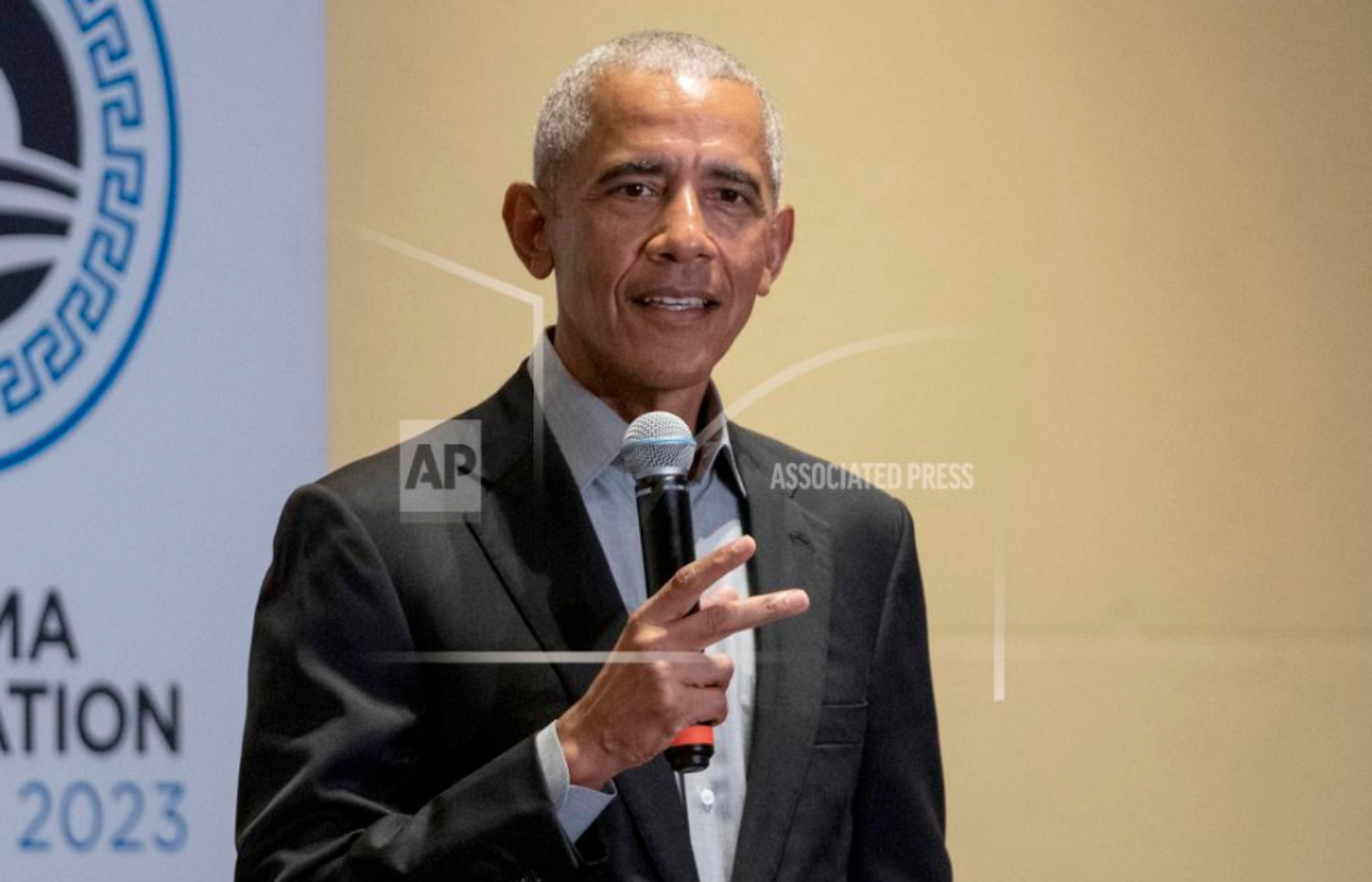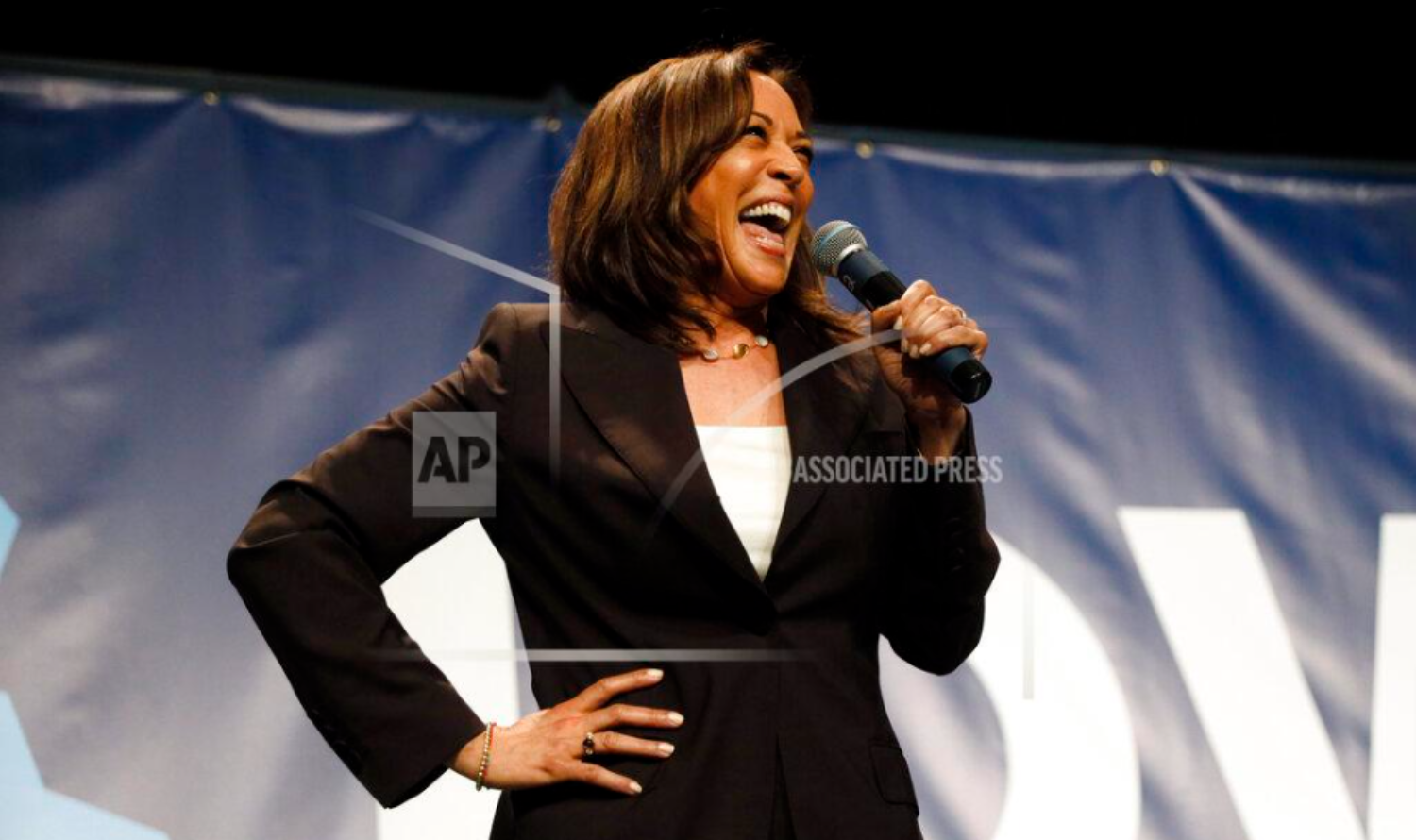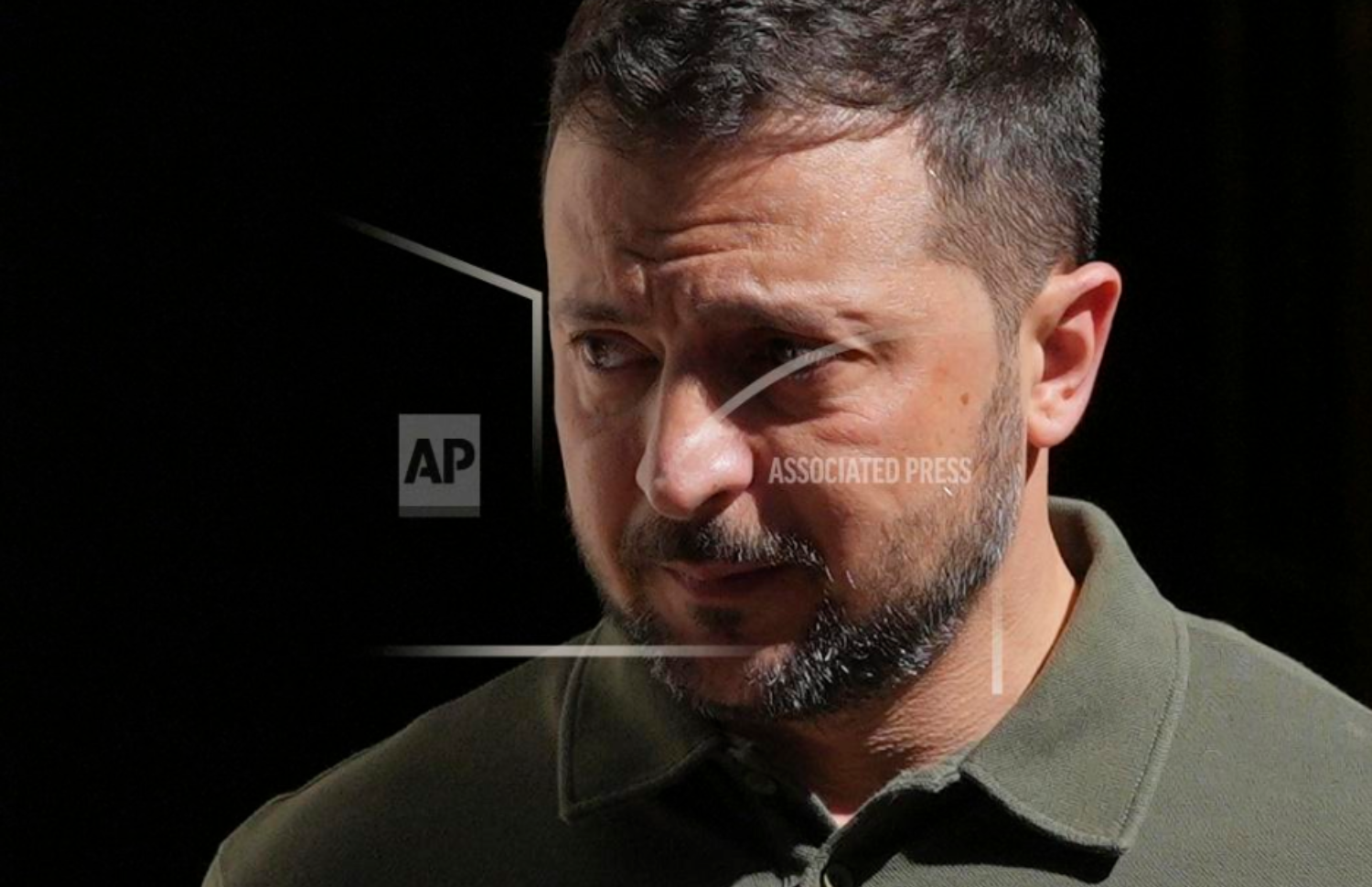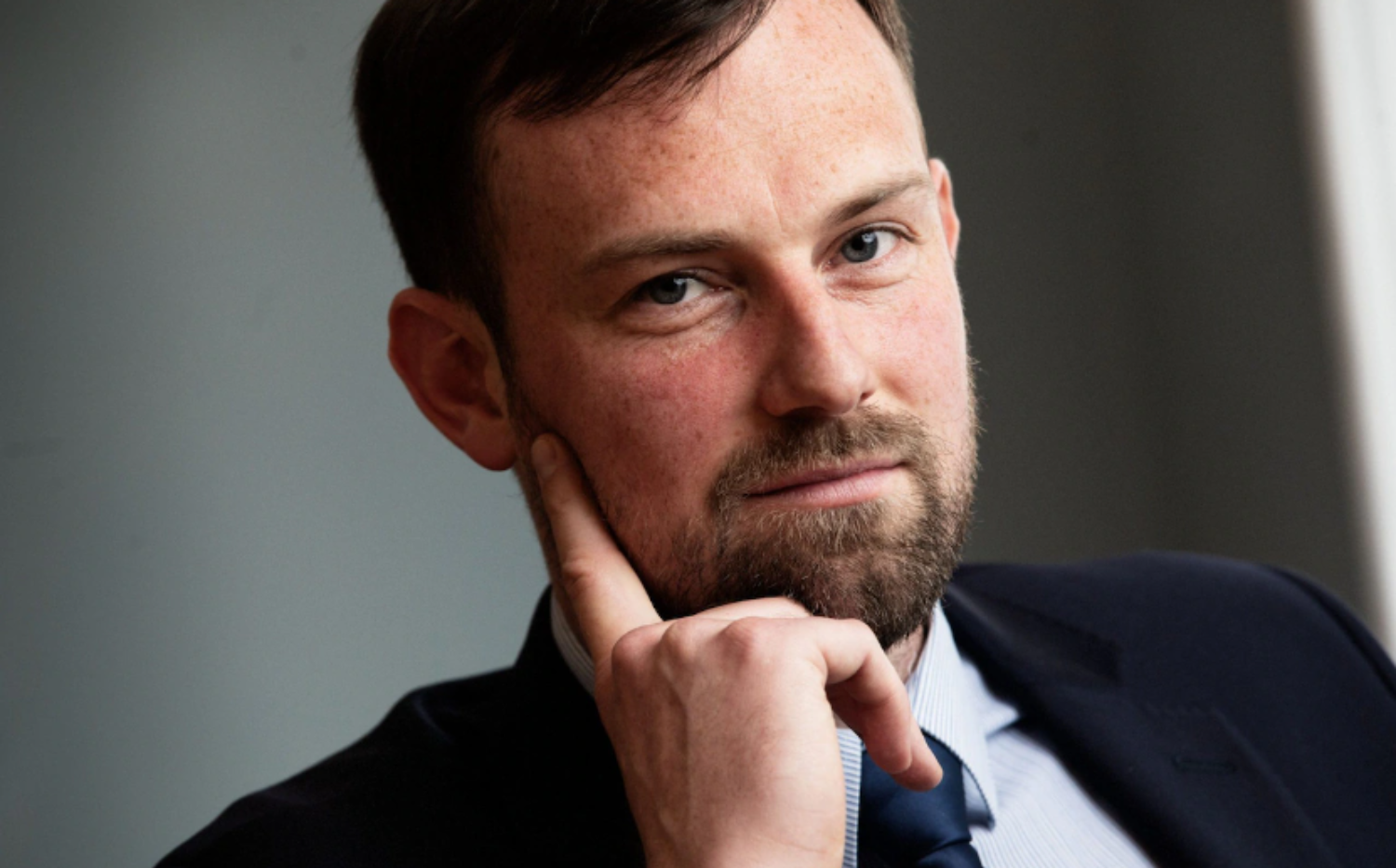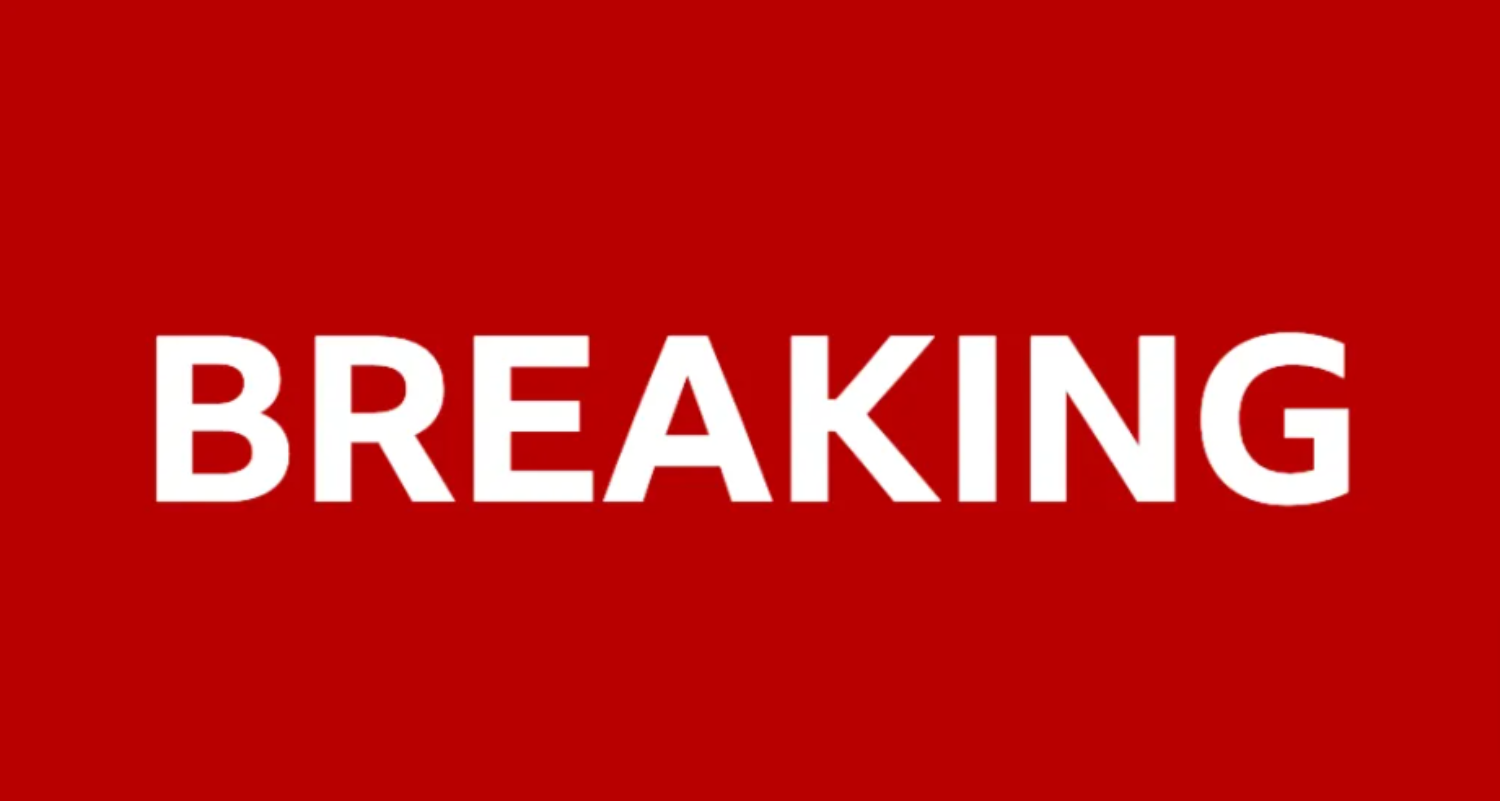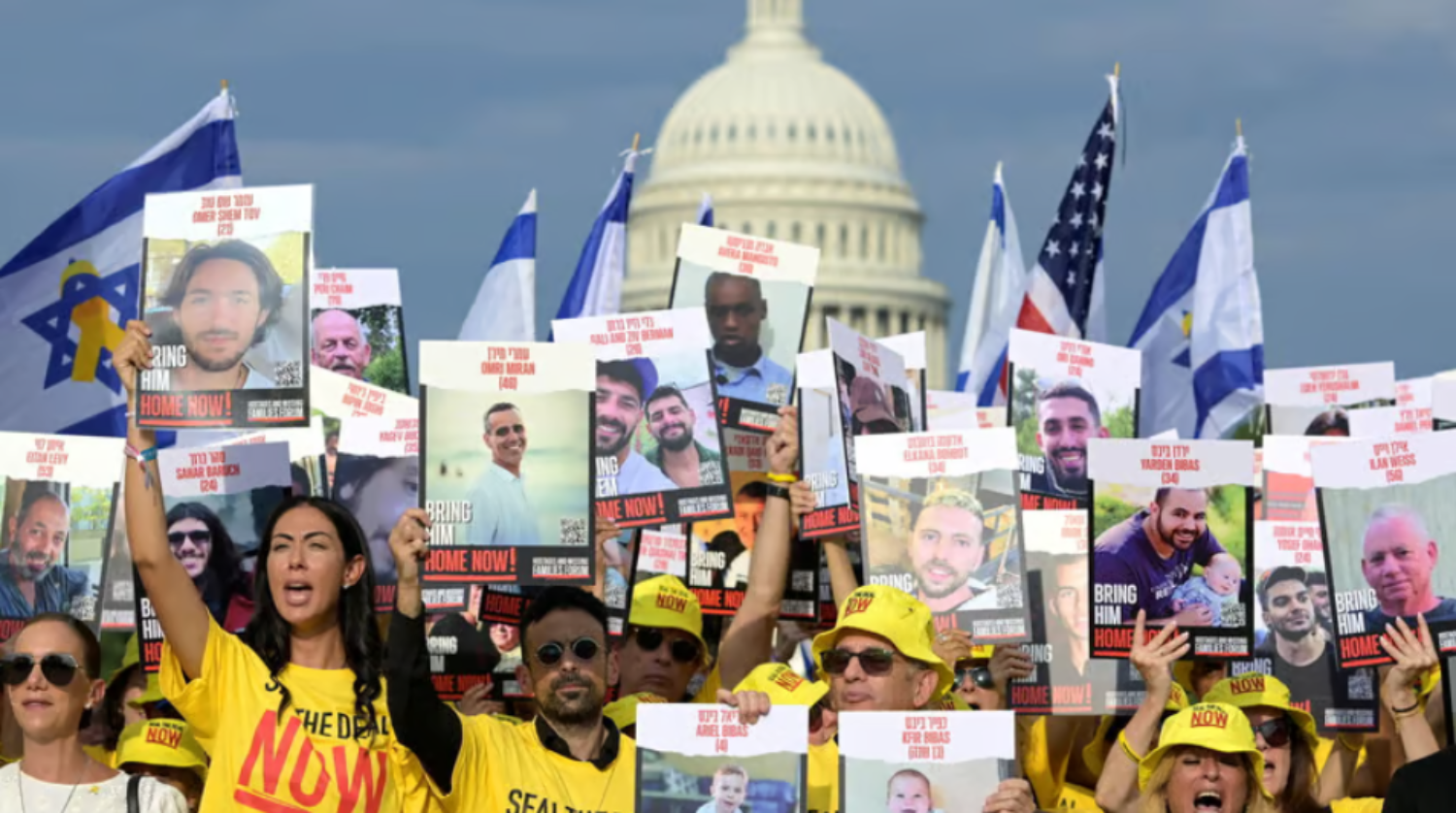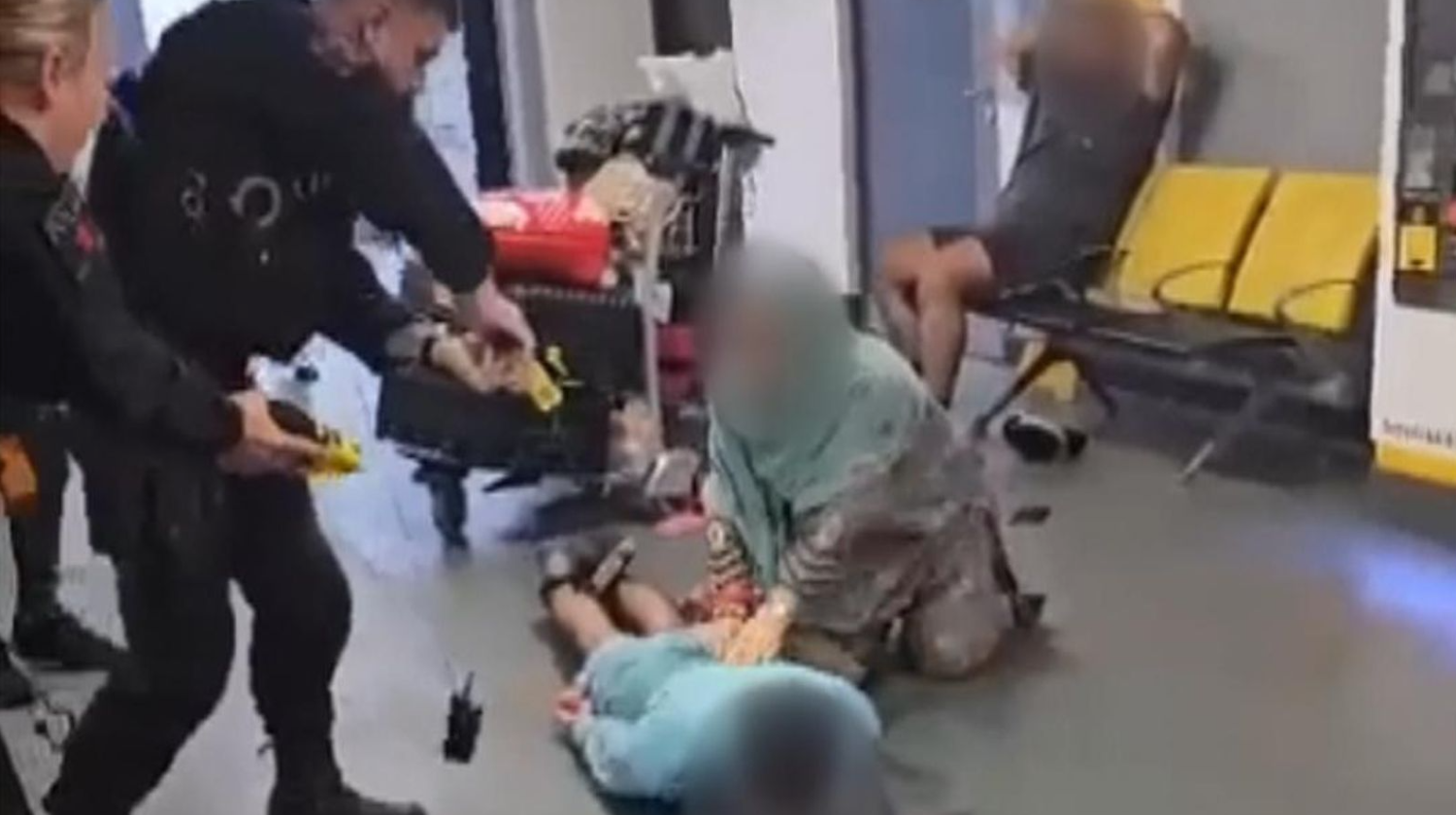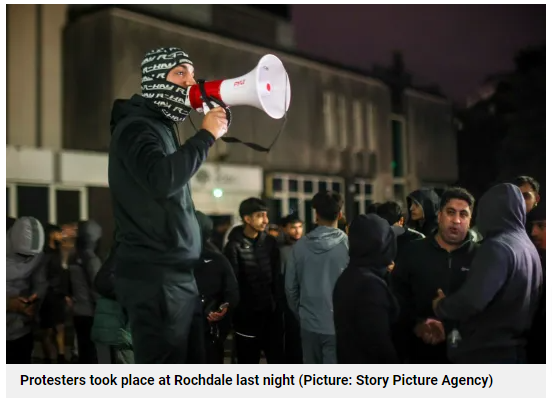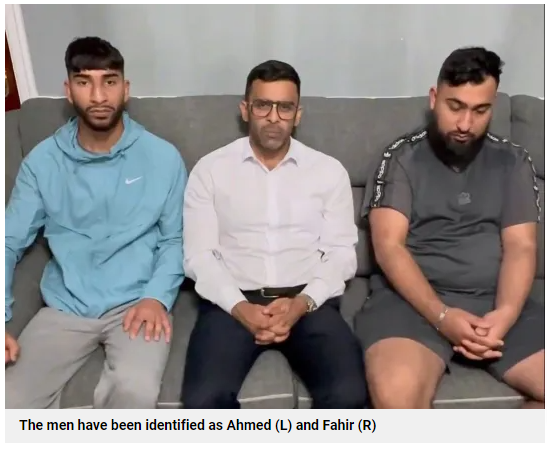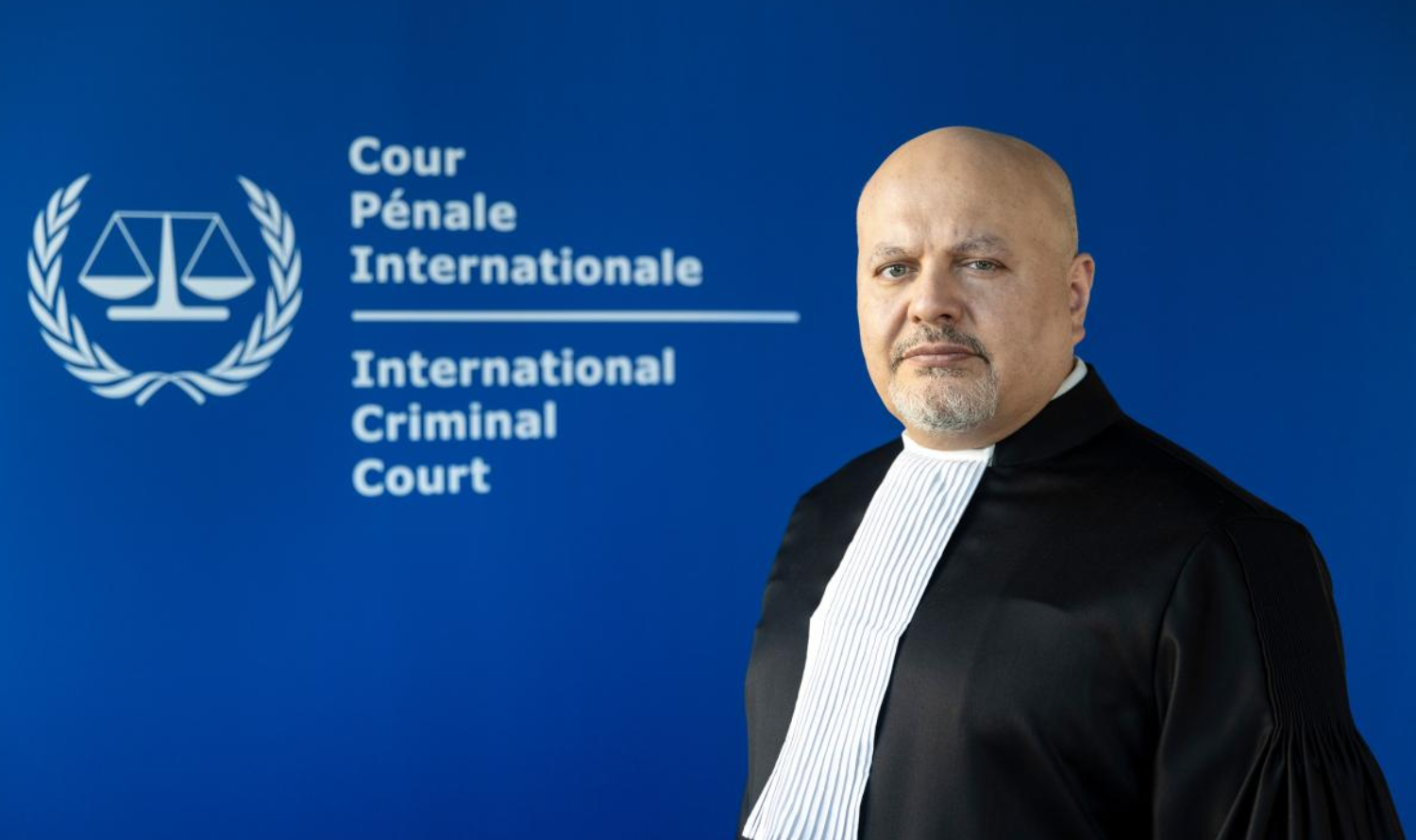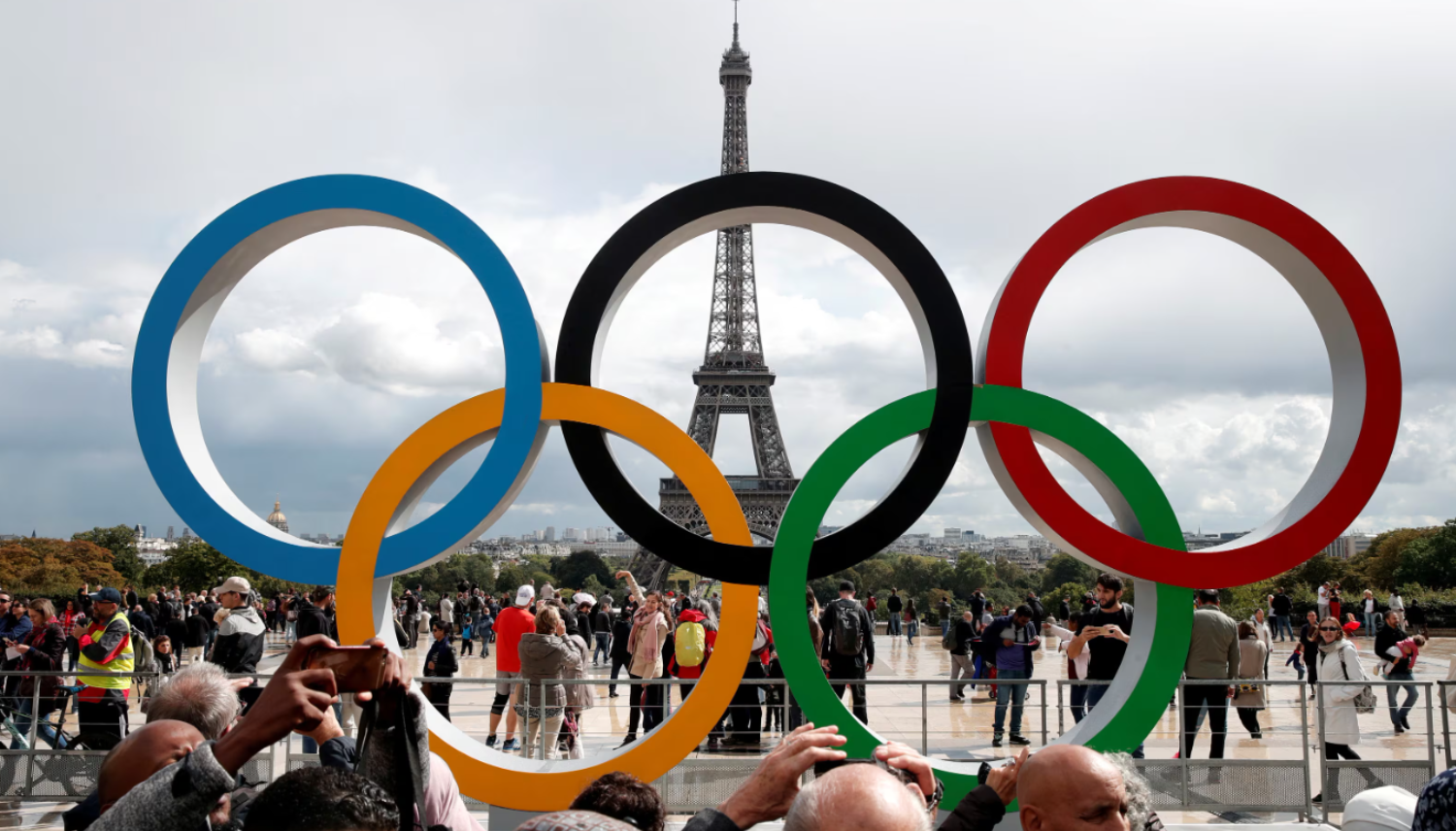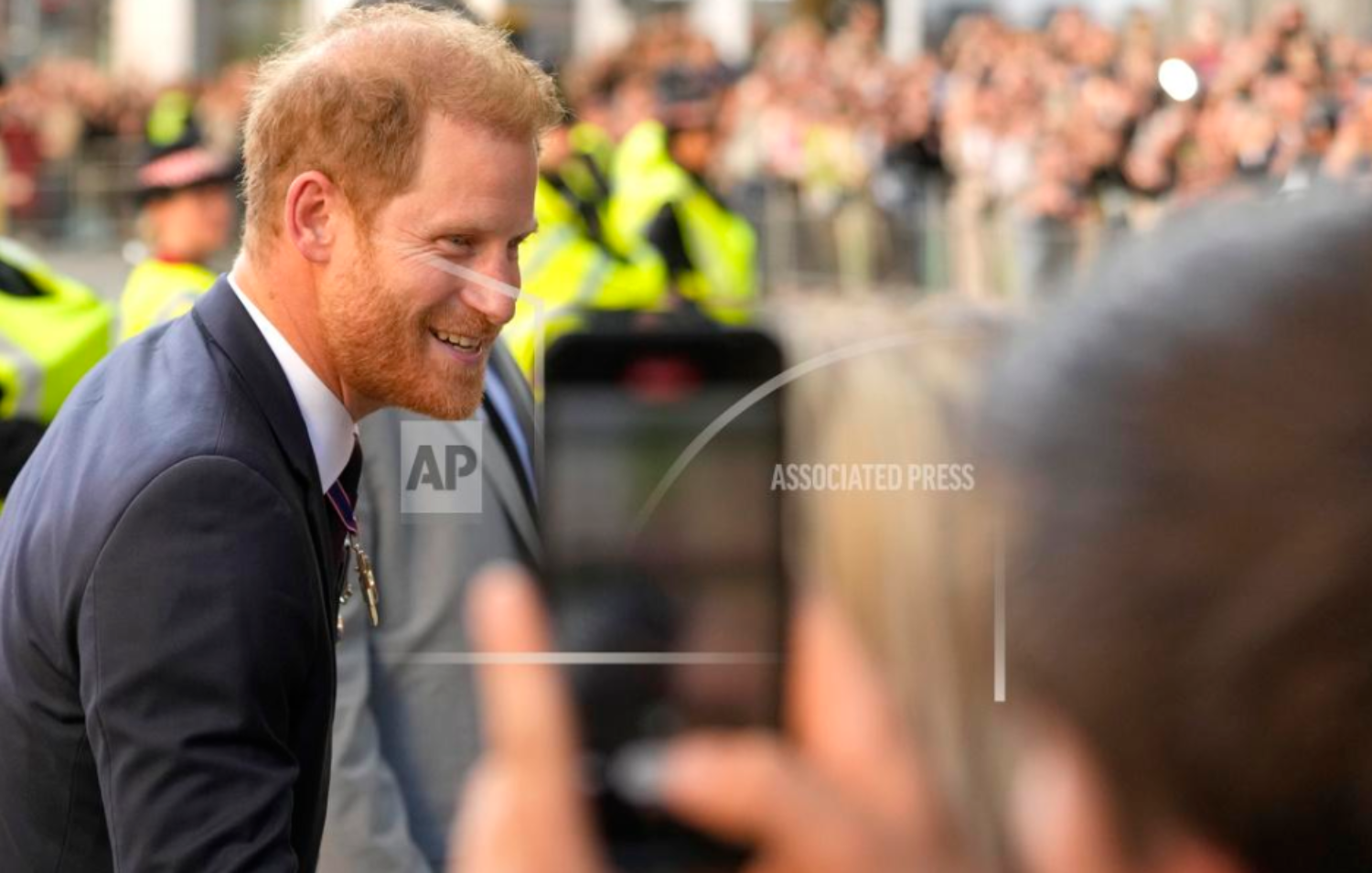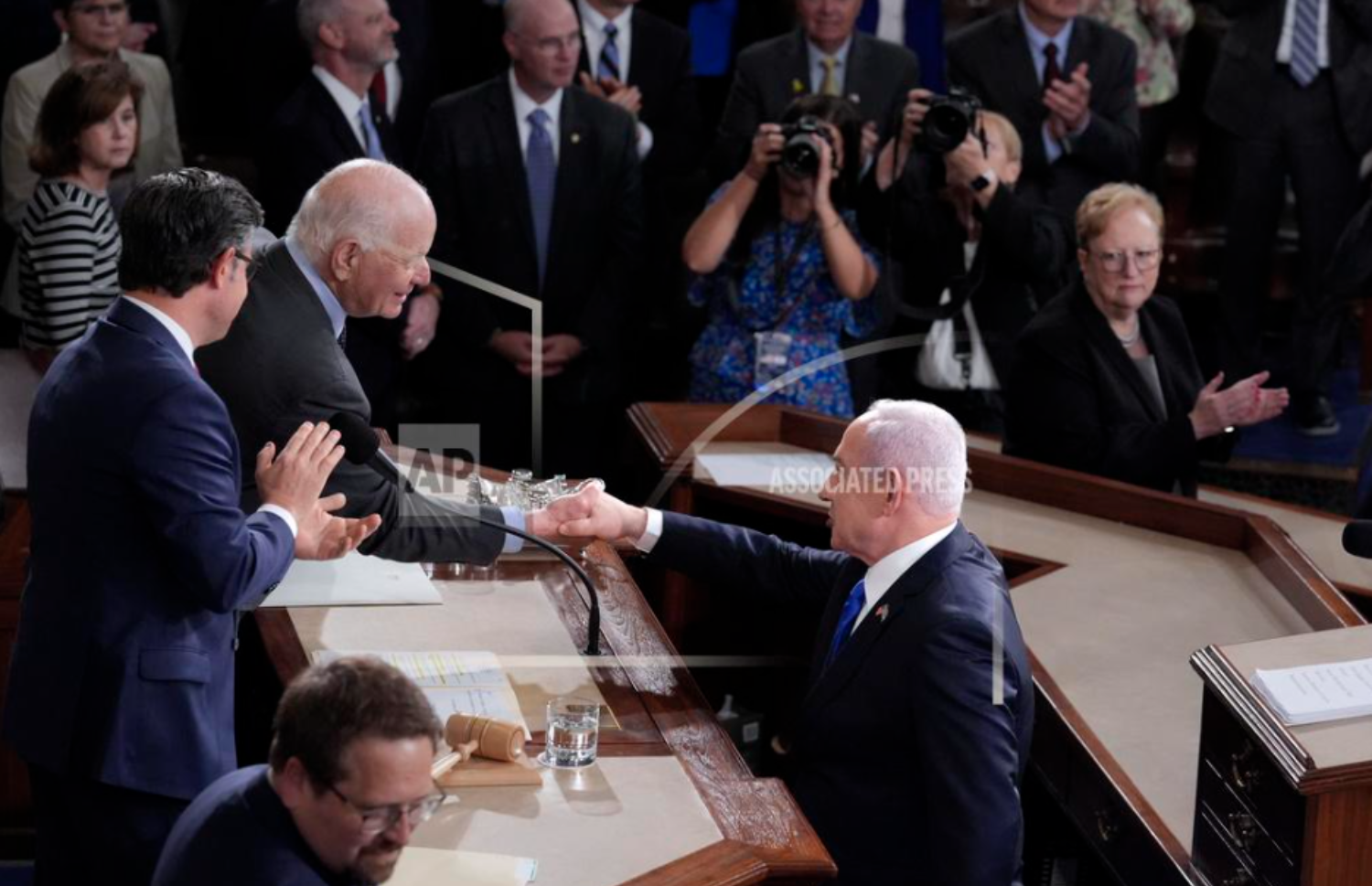-
Posts
10,807 -
Joined
-
Last visited
Content Type
Events
Forums
Downloads
Quizzes
Gallery
Blogs
Everything posted by Social Media
-
Two Just Stop Oil activists have been found guilty of criminal damage after throwing soup over Vincent van Gogh’s renowned painting, "Sunflowers." Anna Holland and Phoebe Plummer, both 22, faced trial at Southwark Crown Court for their actions in October 2022, when they splashed tinned soup over the iconic artwork. The protesters, donned in Just Stop Oil T-shirts, hurled two tins of Heinz tomato soup at the 1888 masterpiece, which was displayed in the National Gallery. Following the act, they knelt in front of the painting and glued their hands to the wall beneath it. Although the painting itself remained unharmed, the 17th-century gold-coloured frame sustained damage. Prosecutors highlighted that the soup, purchased from a nearby Tesco, acted like paint stripper on the wooden frame, which they described as "a piece of art in itself." In a video captured during the protest, Plummer can be heard questioning, "What is worth more, art or life? Is it worth more than food? Worth more than justice?" She continued, "Are you more concerned about the protection of a painting, or the protection of our planet and people? The cost of living crisis is part of the cost of oil crisis." Despite their arguments, the two women denied the charge of criminal damage. Judge Christopher Hehir, who recently sentenced five other Just Stop Oil activists to prison terms ranging from four to five years for disruptions on the M25, released Holland and Plummer on bail. Their sentencing is scheduled for September 27. Until then, their bail conditions prohibit them from carrying glue, paint, or any adhesive substances in public, and they are barred from visiting galleries or museums. This incident was not an isolated one; it was the second attack on the National Gallery by Just Stop Oil in 2022. Earlier in July, two other supporters of the group glued themselves to John Constable’s "The Hay Wain." Credit: Daily Telegraph 2024-07-27 Get our Daily Newsletter - Click HERE to subscribe
-
In a significant political move, former President Barack Obama and former First Lady Michelle Obama endorsed Vice President Kamala Harris as the Democratic presidential nominee on Friday morning. This endorsement arrives at a pivotal moment, just days after President Joe Biden announced his withdrawal from the race and threw his support behind Harris. The Obamas' backing solidifies Harris’s position as the leading candidate for the Democratic nomination. Barack and Michelle Obama expressed their enthusiasm and unwavering support for Harris in a campaign email and video. “This week, we got a chance to catch up with a friend who we've known for more than 20 years. She'd had a pretty busy couple of days, to say the least. But we couldn't be more excited for her — or more thrilled to endorse Kamala Harris as the Democratic nominee for President of the United States,” they stated. The video showed the Obamas calling Harris to share their pride in her achievements and their commitment to supporting her campaign. Barack Obama emphasized, "We will do everything we can to get you through this election and into the Oval Office." Harris, expressing her gratitude for their friendship and support, responded, “We're gonna have some fun with this too, aren't we?” The Obamas’ endorsement brings substantial weight to Harris’s campaign. Barack Obama had previously supported Biden’s decision to step down, acknowledging the difficulty of the decision but affirming that it was made with the nation’s best interests at heart. He said, “For him to look at the political landscape and decide that he should pass the torch to a new nominee is surely one of the toughest decisions in his life. But I know he wouldn't make this decision unless he believed it was right for America.” Obama’s endorsement is not only a personal affirmation of Harris but also a strategic move to unify the Democratic Party behind a single candidate. Barack Obama has been a critical surrogate for Biden throughout his campaign, participating in fundraisers that set single-night fundraising records. His support for Harris now signifies a continuation of his influence in the Democratic Party. Obama has also served as a mentor and advisor to Harris over the two decades they have known each other, providing guidance and support. Michelle Obama, known for her popularity and effectiveness as a campaigner, is expected to play a significant role in Harris’s campaign. According to some polls, she remains the most popular figure in American politics, which could prove to be a valuable asset for Harris. The Democratic National Committee is set to formally select its nominee in a virtual roll call ahead of the party's convention, which begins on August 19. Since Biden’s endorsement, Harris’s campaign has seen record-setting donations and garnered numerous high-profile endorsements, further solidifying her position as the presumptive Democratic nominee. The endorsements from the Obamas are expected to rally the party’s base and bring together various factions within the Democratic Party. The unified support from the Obamas and other prominent Democratic figures signals a strong and cohesive front as Harris prepares for the general election. This consolidation of support is crucial for maintaining momentum and building a robust campaign infrastructure. With the backing of such influential figures, Harris’s campaign is poised to mobilize voters, attract funding, and navigate the complex political landscape ahead. Harris’s campaign is expected to leverage the Obamas’ endorsement to highlight her qualifications, vision, and readiness to lead the nation. The endorsement serves as a testament to Harris’s capabilities and her alignment with the values and goals of the Democratic Party. As the campaign progresses, the focus will be on uniting the party, reaching out to undecided voters, and countering the opposition’s narrative. The support from the Obamas underscores the importance of continuity and stability in leadership, especially in a time of political and social challenges. Their endorsement reflects a commitment to building on the progress made during their administration and ensuring that the Democratic Party remains focused on its core principles and objectives. Harris, with her experience, vision, and dedication, is presented as the candidate best suited to carry forward this legacy. As the Democratic National Committee prepares for the convention and the official nomination process, the focus will be on consolidating support, finalizing the campaign strategy, and preparing for the general election. The endorsement from the Obamas marks a significant milestone in Harris’s campaign, signaling a unified and determined Democratic Party ready to take on the challenges ahead and work towards victory in the upcoming election. Credit: AXIOS 2024-07-27 Get our Daily Newsletter - Click HERE to subscribe Cigna offers a variety of health insurance plans designed to meet the minimum requirement for medical treatment coverage, with benefits reaching up to THB 3 million. These plans are tailored to provide comprehensive healthcare solutions for expatriates, ensuring peace of mind and access to quality medical services. To explore the full range of Cigna's expat health insurance options and find a plan that suits your needs, click here for more information.
-
In a recent turn of events in the political arena, Vice President Kamala Harris has accused former President Donald Trump of retracting his commitment to a September 10th presidential debate. Harris addressed reporters with a clear message: "I'm ready." Her comments came after she returned to Washington following a speech to the American Federation of Teachers in Houston. "I'm ready to debate Donald Trump. I have agreed to the previously agreed upon Sept. 10 debate. He agreed to that previously. Now it appears he's backpedaling. But I'm ready. And I think the voters deserve to see the split-screen that exists in this race on a debate stage. And so I'm ready. Let's go," she asserted. This accusation follows an earlier agreement between Trump and then-President Biden to participate in two presidential debates, the first of which took place on June 27th, hosted by CNN. The second debate was scheduled for September 10th and was to be hosted by ABC News. However, Biden's underwhelming performance in the first debate led to widespread calls for him to withdraw from his reelection campaign, a decision he announced on Sunday. Biden's exit from the race paved the way for Harris to announce her candidacy, and she has since garnered the support of a majority of delegates necessary to secure the Democratic nomination. Trump had previously indicated his willingness to debate Harris, expressing his openness to facing her "more than once." Nonetheless, he has now suggested a change in the debate's hosting network, advocating for Fox News instead of ABC News. Trump took to his social media platform to label ABC as "fake news" and a "joke," casting doubt on the network's credibility. Trump campaign spokesperson Steven Cheung underscored this position in a statement on Thursday evening, noting, "general election debate details cannot be finalized until Democrats formally decide on their nominee." Harris’s readiness to confront Trump on the debate stage highlights her determination to engage in direct political discourse and underscores the significance of these debates in the eyes of the electorate. Her insistence on maintaining the original debate schedule reflects a broader commitment to transparency and accountability in the democratic process. Meanwhile, Trump's insistence on changing the debate host has sparked a contentious debate about media credibility and the platforms that should be entrusted with such pivotal events. As the political landscape continues to evolve, the potential showdown between Harris and Trump on September 10th remains a focal point of public interest. The outcome of these debates could significantly influence the direction of the upcoming election, providing voters with a clear comparison between the candidates. Harris’s bold stance and Trump’s contentious counter-moves set the stage for a highly anticipated and potentially transformative moment in American politics. Credit: CBS 2024-07-27 Get our Daily Newsletter - Click HERE to subscribe
-
Among the essentials are a lend-lease program, real sanctions on Russia, and a revitalized NATO. Pundits claim that if Donald Trump is re-elected, he will cut off aid to Ukraine, give away its territory, and deal directly with Vladimir Putin to impose an ignominious “peace” on the country. There’s no evidence that such capitulation will be part of President Trump’s policy and much evidence to the contrary. It was Mr. Trump who in 2017 lifted the Obama administration’s arms embargo on Ukraine, providing it with the Javelin missiles that helped save Kyiv in the earliest days of Russia’s invasion. More recently, Mr. Trump gave political cover to House Speaker Mike Johnson when he maneuvered to pass additional military aid. Helping Ukraine while revitalizing the American defense industrial base in Alabama, Pennsylvania, and Virginia is good policy—and good politics. The Biden administration’s weakness has left Ukraine where it is today: two years into a full-scale war, with cities destroyed, hundreds of thousands killed, millions of refugees, and without the means to win. The White House has no strategy for victory, and Americans are rightly concerned. While Mr. Biden stumbled into war through weakness, Mr. Trump could re-establish peace through strength. Here’s how a successful plan for Ukraine might look: Unleash America’s energy potential. This will fire up the U.S. economy, drive down prices and shrink Mr. Putin’s war-crimes budget. Rebuild ties with Saudi Arabia and Israel and work together against Iran. This will stabilize the Middle East, ease the Gaza crisis, and create an opening for the Saudis to join the U.S. in squeezing Russia out of global energy markets. Impose real sanctions on Russia. The Biden administration’s sanctions sound good on paper but are hollow. The Treasury, for example, exempts Russian banks from U.S. sanctions if their transactions are related to energy production—the most important revenue source for the Kremlin’s war machine. Bulk up America’s defense industry. We must show our adversaries, especially Russia and China, that they can’t compete with U.S. defense capabilities. Russia’s economy is smaller than Texas’. We can’t allow China to match and surpass the U.S. Revitalize the North Atlantic Treaty Organization. This includes making Europeans pay their fair share. It is time to raise the bar on spending to 3% of member countries’ gross domestic product. Create a $500 billion “lend-lease” program for Ukraine. Instead of saddling U.S. taxpayers with more bills, let Ukraine borrow as much as it needs to buy American weapons to defeat Russia. This is how we helped Britain in World War II before Pearl Harbor. It’s how we can send a clear signal to Mr. Putin that he will never win. Lift all restrictions on the type of weapons Ukraine can obtain and use. This will re-establish a position of strength, which Mr. Putin will understand means the war must end. He will face rising costs and no chance of further gain. These steps would position Mr. Trump to set the terms of a deal: The war stops immediately. Ukraine builds up substantial defense forces so Russia never attacks again. No one recognizes Russia’s occupation and claimed annexation of any Ukrainian territories—just as we never recognized the Soviet incorporation of the Baltic states and withheld recognition from East Germany until 1974. Crimea is demilitarized. Ukraine rebuilds with reparations from Russia’s frozen central-bank reserves, not U.S. taxpayer dollars. Ukraine joins NATO as soon as possible so all European allies assume the burden of protecting it. NATO should establish a $100 billion fund for arming Ukraine, with the U.S. share capped at 20%, as is the case with other alliance common budgets. The European Union should swiftly admit Ukraine and help it modernize and develop its economy. If Russia complies with these terms, the West will gradually lift sanctions. They will be fully removed once Ukraine is in both NATO and the EU. These steps, and not the half-measures of the Biden administration, will end the war, establish a lasting peace, ensure Europe bears the burden of maintaining it, and re-establish freedom and security on the Continent. To those who doubt: The last thing Mr. Trump wants in a second term is a foreign-policy failure that distracts from his domestic agenda and makes Mr. Biden’s botched withdrawal from Afghanistan look like a success in comparison. This comprehensive strategy highlights the belief that strength, clear policies, and strategic international alliances are essential to ending the conflict in Ukraine. By leveraging America's energy resources, reinforcing defense capabilities, and revitalizing NATO, a Trump-led administration could potentially navigate the complexities of the Ukraine-Russia conflict toward a resolution that prioritizes stability and security for Ukraine and the broader international community. Mr. Urban is managing director at the BGR Group and of counsel at Torridon Law. Mr. Pompeo served as secretary of state, 2018-21. Credit: Wall Street Journal 2024-07-27 Get our Daily Newsletter - Click HERE to subscribe Cigna offers a variety of health insurance plans designed to meet the minimum requirement for medical treatment coverage, with benefits reaching up to THB 3 million. These plans are tailored to provide comprehensive healthcare solutions for expatriates, ensuring peace of mind and access to quality medical services. To explore the full range of Cigna's expat health insurance options and find a plan that suits your needs, click here for more information.
- 70 replies
-
- 11
-

-

-

-
Joshua Sutcliffe, a Christian former math teacher, has raised alarms about the potential risks for educators who share their personal beliefs in the classroom after he lost a High Court appeal against a decision to ban him from teaching. Sutcliffe was barred from the profession in 2023 after the Teaching Regulation Agency (TRA) concluded that he breached safeguarding duties by refusing to use a transgender student’s preferred pronouns and telling students that homosexuality was a sin. This case, the first of its kind to reach and be dismissed at the appeal stage, underscores the challenges at the intersection of personal beliefs and professional conduct in education. Mr. Sutcliffe expressed his dismay at the ruling, stating, "I still stand by my Christian convictions that it is harmful and detrimental to affirm gender-confused children." He claimed that he had been targeted ever since he "dared to express [his] Christian beliefs in a school" and made public appearances in the media. He argued that the TRA had been intent on making him recant his views, punishing him severely for his refusal. Despite this setback, Sutcliffe vowed to continue his fight for justice and to reclaim his career. He lamented the lack of guidance for teachers on such issues during his early years in the profession, noting that schools were more likely to follow advice from organizations like Stonewall rather than the government or other experts. Sutcliffe's attempt to overturn the prohibition order from May 2023 was rejected. The TRA had found him guilty of "unacceptable professional conduct" while he was employed at The Cherwell School in Oxford from 2015 to 2018. The misconduct panel determined that Sutcliffe had repeatedly failed to use a pupil’s preferred pronouns, referring to the student in class, in an email to staff, and during an appearance on ITV’s This Morning. The panel also found that he had failed to safeguard students' wellbeing by telling them that God had stopped someone from being gay because it was wrong, and by expressing his disapproval of equal marriage. In his defense, Sutcliffe’s lawyers argued that the teaching ban represented an "unjustified interference" with his rights to freedom of speech and religion. They contended that the decision was "unsafe" and based on "perverse" findings, maintaining that Sutcliffe had a right "not to believe in gender identity belief." However, Mr. Justice Pepperall, in a written ruling, dismissed these arguments. The judge concluded that Sutcliffe "fails to understand or accept the harm that he caused vulnerable children in his class," asserting that there was "no merit" in his claim that the ban infringed on his religious expression. Justice Pepperall clarified that the case was not about a teacher who accidentally failed to adhere to a school's policy on pronouns or who tried to reconcile personal beliefs with such policies by avoiding pronouns altogether. Instead, it concerned a teacher who intentionally used female pronouns for a transgender male student, both in the classroom and on national television, thereby causing significant distress to a vulnerable child. The judge also condemned Sutcliffe for his comments implying that homosexuality was a sin that could be cured by God, noting that these remarks showed "no regard for the gay and lesbian children in his class" and made them feel "worthless." Additionally, Sutcliffe faced allegations of showing inappropriate videos to students while working as a math teacher at St Aloysius College in Islington, north London, from 2018 to 2019. The TRA found it "more likely than not" that he had shown students a video about masculinity, which suggested that women were only attracted to "real men" and not "a passive man who looks to her to be his provider, protector, and leader." Credit: Daily Telegraph 2024-07-27 Get our Daily Newsletter - Click HERE to subscribe Cigna offers a variety of health insurance plans designed to meet the minimum requirement for medical treatment coverage, with benefits reaching up to THB 3 million. These plans are tailored to provide comprehensive healthcare solutions for expatriates, ensuring peace of mind and access to quality medical services. To explore the full range of Cigna's expat health insurance options and find a plan that suits your needs, click here for more information.
-
Hours before the opening ceremony for the Paris Olympics, French rail company SNCF says its high-speed network has been targeted by "malicious acts" aimed at paralysing the system. Several high-speed TGV lines have been hit to the west, north and east of Paris and queues have formed at Montparnasse station which serves destinations to the west of the capital. Transport Minister Patrice Vergriete has strongly condemned "criminal acts" that he said would affect people's holiday plans. A number of trains have been cancelled and SNCF has warned that the situation could last "at least all weekend while repairs are conducted". Sports Minister Amélie Oudéa-Castéra described the attacks as "downright appalling", adding that the impact on the public and Olympic athletes was currently being assessed. More than 300,000 spectators are expected in the heart of Paris on Friday for an opening ceremony that will see thousands of Olympic athletes sailing down the River Seine. SNCF said fires had been set alight aimed at damaging its facilities. A source close to the investigation told AFP news agency that the attack involved acts of "sabotage". Although no-one has admitted targeting the high-speed network, there will inevitably be concern that it involves apparently co-ordinated acts of vandalism. Some high-speed services have been diverted on to other lines, causing a knock-on effect to other services. Credit: BBC 2024-07-26 Get our Daily Newsletter - Click HERE to subscribe
-
Kamala Harris's first significant move on the global stage as the presumptive Democratic presidential nominee has raised eyebrows and sparked discussions. On July 24th, she did not attend the address by Israeli Prime Minister Benjamin "Bibi" Netanyahu to a joint meeting of Congress. Traditionally, as vice president and president of the Senate, Harris would oversee the event alongside Mike Johnson, Speaker of the House. Instead, she has chosen to attend a previously scheduled event in Indianapolis with Zeta Phi Beta, a historically Black sorority. This decision, criticized by Republicans as "outrageous." This absence signals a generational transition within the Democratic Party. President Joe Biden, likely the last Democratic president to call himself a "Zionist," belongs to a generation that recalls Israel's early years as an underdog democracy fighting for survival against Arab adversaries. In contrast, Harris’s formative view encompasses the last 30 years, during which Israel has been seen as a dominant power in the Middle East, often criticized for its treatment of Palestinians. Despite this shift in perspective, it is not to say that Harris will abandon the Democratic Party's long-standing support for Israel. Although several Democrats boycotted Netanyahu, Harris is set to meet with the Israeli prime minister on July 25th. Netanyahu also plans to meet with President Biden the same day, and with former President Donald Trump on July 26th. Harris’s position on Israel, while supportive, lacks the emotional intensity seen in Biden's approach. Her husband is Jewish, but she does not exhibit the same emotional attachment to Israel. This was evident when Biden visited Israel soon after Hamas’s attacks on October 7th, embraced Netanyahu, and declared, “The United States stands with you.” In contrast, Harris has more forcefully decried the suffering of Palestinian civilians and advocated for a ceasefire and hostage release. At her first campaign rally in Wisconsin on July 23rd, Harris did not mention foreign policy. Her early experience in this area was limited and controversial, particularly her role in addressing the "root causes" of migration from Central America. Republicans have renewed attacks on her for failing to secure the southern border. However, Harris has become more assured lately, having visited Europe, Asia, and Africa, among other regions. Her national security adviser, Philip Gordon, is a seasoned expert in European and Middle Eastern affairs, having served under previous Democratic administrations. Over 350 former national-security officials have described Harris as "the best qualified person to lead our nation as Commander in Chief," noting that she possesses more foreign affairs experience than most recent incoming presidents. Harris shares Biden's internationalist perspective. In February, at the Munich Security Conference, she warned against American retrenchment, stating, "Isolation is not insulation. In fact, when America has isolated herself, threats have only grown." Yet, she may not fully share Biden's generation’s instinctive transatlanticism. Unlike Trump, Harris would not threaten to abandon European allies. However, American politicians are increasingly focused on the growing rivalry with China, and Harris is expected to continue this trend. Regarding the Middle East, Harris is likely to continue seeking to create a regional counterbalance involving Israel and Gulf Arab states, notably Saudi Arabia. For this to happen, the U.S. is pushing for a ceasefire in Gaza, coupled with an exchange of Israeli hostages. This ceasefire could pave the way for ending the war and making progress towards Palestinian statehood. In June, Gordon outlined two paths for Israel: one of endless war in Gaza, leading to "the looming threat of serious regional escalation, and growing Israeli isolation on the world stage," and another promising "the path to a strong, secure and prosperous Israel; at peace with its neighbors; backed by the United States; and integrated in the region as never before." Biden hopes to secure this deal during his remaining time in office. If he fails, this challenge could fall to Harris. Aaron David Miller of the Carnegie Endowment for International Peace suggests that Harris's presidency might see little real change in U.S.-Israel relations. He notes that American pressure on close allies, particularly Israel, is rare due to domestic politics. Even President Obama, who criticized Israeli settlements and pushed for a Palestinian state, did not impose his will on Netanyahu and signed a significant security deal with Israel. "We rarely use real pressure or leverage on any of our close allies," says Miller. "And when it comes to the Israelis, because of our domestic politics, that is true in spades." Netanyahu's visit to Congress in 2015, where he opposed Obama’s Iran nuclear deal, contrasts with his expected approach this time, given the current political uncertainties in the U.S. Many in Congress remain receptive to his warnings about Iran, especially as Iran's nuclear program advances and it aligns more closely with autocratic regimes like Russia, China, and North Korea. Iran’s supply of ballistic missiles and drones to Russia for use in Ukraine further complicates the geopolitical landscape. In summary, Kamala Harris's foreign policy approach as the presumptive Democratic nominee for president suggests a nuanced blend of continuity and change. While maintaining the Democratic Party's traditional support for Israel, she is likely to adopt a more critical stance on Israeli policies towards Palestinians. Her focus will also include managing the growing rivalry with China and maintaining a strong stance against Russian aggression. Credit: Economist 2024-07-26 Get our Daily Newsletter - Click HERE to subscribe
-
A police officer at Manchester Airport has been suspended following the release of a video showing a man being kicked while on the ground. The footage, widely shared on social media, depicts officers from Greater Manchester Police (GMP) kicking and stamping on a man's head after he was tasered. This incident occurred on Tuesday evening and has since ignited significant public outrage. A police spokesman said three officers were "punched to the ground" in a "violent assault" when they attempted to arrest one of the suspects, he added. “As the attending officers were firearms officers, there was a clear risk during this assault of their firearms being taken from them." Three officers were taken to hospital for treatment, with one female officer suffering a broken nose. In response to the video, hundreds of protesters gathered outside a police station in Rochdale, expressing their anger and chanting, "GMP, shame on you." The victims, identified as Ahmed and Fahir, have spoken out through their solicitor, who has lodged a formal complaint against GMP. A spokesman for the police stated that the incident is under investigation by the Independent Office for Police Conduct (IOPC), and an officer has been suspended from all duties. The solicitor representing the victims, Akhmed Yakoob, revealed in a video that Ahmed and Fahir were released from Cheadle Police Station and had to make their way to the hospital due to head injuries. Yakoob criticized the police for not ensuring the victims received immediate medical care, stating, "It was the police's duty to take them to a hospital." The victims' elderly mother was present during the incident as a bystander. During a protest outside the Rochdale station, demonstrators expressed their frustration with cries of "f*** the police" and "Allahu Akbar [God is greatest]." A local Imam, attempting to calm the crowd, urged them not to resort to violence, reminding them to remain "respectable citizens." Greater Manchester Police has acknowledged the public's concerns and is cooperating with the IOPC for a comprehensive investigation. The officer involved has been removed from active duty. Paul Waugh, a newly elected Labour MP, expressed his shock over the video, describing it as "truly shocking and disturbing." He confirmed his intent to meet with the victims' family and has communicated his concerns to the police leadership. In the video, a woman in a headscarf can be seen standing over the victim. The officer with a taser kicks the man in the head before stamping on him and attempting to arrest him. A female officer, appearing shocked, instructs onlookers to stand back. Another officer can be heard shouting commands at a seated man, who is then forcibly handcuffed. The elderly woman, revealed to be the victims' mother, appears confused and is pushed away by an officer. Additional footage shows officers trying to control a group in the concourse. An officer, wielding a taser, points it at a man, threatening arrest. At one point, pepper spray is deployed, and the men are subdued and removed from the premises. Witness Amar Rafiq recounted the chaotic scene, describing how officers tackled the individuals to the ground after an altercation. He noted the public's fear, saying, "Everyone was worried about themselves; they started panicking and rushing away." Amar Minhas, another witness, described arriving at the airport to see police confronting a young man, leading to a physical struggle and the eventual use of a taser. Minhas noted, "That's when the policeman kicked him." GMP Assistant Chief Constable Wasim Chaudhry stated, "We understand the immense feeling of concern and worry that people feel about our response and fully respect their right to demonstrate their views peacefully." The police are engaging with community leaders to address concerns and ensure transparency as the investigation proceeds. Credit: Metro | BBC | X 2024-07-26 Get our Daily Newsletter - Click HERE to subscribe
-
The International Criminal Court (ICC) has accepted numerous requests from states, organizations, and individuals to file amicus briefs concerning the potential arrest warrants for Israeli leaders and Hamas figures. This influx of briefs is expected to delay the court’s decision by several months. The ICC Prosecutor, Karim Khan, is seeking arrest warrants for Israeli Prime Minister Benjamin Netanyahu, Defense Minister Yoav Gallant, and Hamas leaders Ismail Haniyeh, Yahya Sinwar, and Mohammed Deif, citing alleged crimes during the October 7 attack by Hamas and the ensuing conflict in Gaza. Seventy parties have been granted permission to submit briefs, many disputing the ICC’s jurisdiction over Israeli nationals and its authority to issue arrest warrants. This situation highlights ongoing debates about the court's jurisdiction and the admissibility of the case, which could ultimately lead to a rejection of the warrants. The UK and other Israeli allies argue that the ICC lacks jurisdiction because the Oslo Accords state that Palestinian authorities cannot exercise criminal jurisdiction over Israelis. Moreover, Israel and its supporters contend that the Palestinians never had jurisdiction to delegate to the ICC. Admissibility issues arise from the principle of complementarity, a key component of the ICC’s framework. This principle prohibits the court from proceeding if the accused's home state is capable and willing to conduct its own investigation. Critics argue that Khan did not allow enough time for Israeli investigations before pursuing international warrants. Several countries, including Germany, the US, and Argentina, along with organizations like the Israel Bar Association and various Jewish legal groups, support Israel’s position. They express concerns over both jurisdiction and the complementarity principle, suggesting that Khan’s actions may undermine the ICC’s legitimacy. Conversely, countries such as South Africa, Ireland, Bangladesh, and Spain have been allowed to submit briefs opposing Israel’s stance. The court’s pre-trial chamber must now review all submissions and provide Khan with the opportunity to respond, contributing to the delay. This case illustrates the complexity and contentious nature of international legal proceedings related to geopolitical conflicts. Credit: Reuters | TOI 2024-07-26 Get our Daily Newsletter - Click HERE to subscribe
-
The 2024 Olympics, set to commence in Paris on Friday, promises to be a significant event on the global stage, not only for its athletic competition but also for the geopolitical tensions that loom over it. With the ongoing Russia-Ukraine war, the Israel-Palestine conflict, and strained relations between the U.S. and countries like Iran and China, the backdrop of these Games is more charged than usual. Despite these global tensions, athletes from around the world will be expected to set aside international disputes and exhibit exemplary sportsmanship. Among these athletes are participants from Russia and Ukraine, potentially leading to direct competitions between them. This is particularly noteworthy given that, technically, Russia has been banned from the Games. Following President Vladimir Putin's invasion of Ukraine, Russian athletes will compete as "Individual Neutral Athletes" (AIN). This decision by the organizers means that while Russian athletes can participate, they cannot represent their country officially. The Russian flag, national kit, and anthem are all banned from the venues. Furthermore, any medals won by Russian athletes will not count towards the official Paris 2024 medal table. The International Olympic Committee (IOC) has stipulated that these athletes must not have actively supported the war or have any connections to the Russian military. Additionally, no Russian teams are allowed to compete, and the governing body of World Athletics has banned Russian track and field athletes. These sanctions have significantly reduced the number of Russian competitors at the Games. Whereas 335 Russian athletes competed in Tokyo 2020, only 15 are expected in Paris. Some Russian athletes who had accepted invitations were later rejected by their sport’s governing bodies. For instance, Russia's weightlifting federation declined invitations for 10 athletes, citing an "unsportsmanlike selection principle." President Putin has criticized the IOC’s conditions, accusing them of "ethnic discrimination" and claiming that the restrictions aim to marginalize Russian athletes. "If the IOC's artificial conditions are designed to cut off the best Russian athletes and portray at the Olympics that Russian sport is dying, then you need to decide whether to go there at all," Putin said last year. The IOC has firmly denied these accusations, stating, "Participation in the Olympic Games is by no means a human right," and emphasizing that the restrictions respond to breaches of the Olympic Charter by the Russian and Belarusian governments. Despite the challenges, some prominent Russian athletes are set to compete in Paris. This includes former world number one tennis player Daniil Medvedev, along with six other tennis players, three canoeists, three road cyclists, one trampoline gymnast, and one swimmer. Ukrainian athletes are also expected to participate in similar disciplines, setting the stage for potential direct competitions between Russians and Ukrainians. The IOC has acknowledged the complex situation for Ukrainian athletes who may find themselves competing against Russians. "We are glad that they will be given this opportunity [to compete in the Games], and at the same time, we are aware of the difficult inner conflicts they may have, given the aggression against their country," the IOC stated. They have encouraged International Federations to manage these situations with sensitivity and reiterated their solidarity with Ukrainian athletes. This situation is not unprecedented for Russia, which faced an Olympic ban in 2018 after an investigation revealed state-sponsored doping. Many Russian athletes were banned for life or had their medals stripped, though some were allowed to compete as "clean" athletes under the banner of the "Russian Olympic Committee" (ROC), rather than Russia itself. Credit: Newsweek 2024-07-26 Get our Daily Newsletter - Click HERE to subscribe
-
A man has been arrested and charged with attempted murder after allegedly stabbing a 17-year-old transgender girl multiple times at Miami International Airport. The attack occurred on Sunday evening while the victim was eating on the floor of Terminal J. Alexander Love, 29, has been charged with first-degree attempted murder with a deadly weapon and attempted premeditated murder. According to the arrest report from the Miami-Dade Police Department, officers responded to reports of a stabbing around 11:30 p.m. Upon arrival, they found the victim severely injured from multiple stab wounds to her face, head, arms, shoulders, neck, and legs. Police stated that Love attacked the girl without any provocation, using a butcher knife. He allegedly tried to throw her over a safety retaining glass after the stabbing. Despite her critical injuries, the victim managed to escape the assault and ran down to the third-floor level, where officers found her. She was immediately taken to a local medical center for emergency surgery. Her current condition remains unknown. Customs and Border Patrol agents apprehended Love shortly after the incident. During his arrest, Love claimed to have been acquainted with the victim prior to the attack. He provided a bizarre explanation, stating that he believed he had been drugged and that an unknown object had been inserted into his rectum. Although he was uncertain if the victim was responsible, Love said he felt compelled to "hurt whoever hurt him" and purchased the knife from a nearby Target store. Law enforcement officials recovered the knife at the scene. Love was subsequently booked into the Turner Guilford Knight Correctional Center, where he was denied bond in court on Monday. He was also ordered not to contact the victim. It remains unclear whether he has obtained legal representation. The police spokesperson indicated that hate crime charges have not been ruled out, as investigators have yet to speak with the victim. The investigation is ongoing as authorities work to gather more information about the circumstances surrounding the attack. Credit: NBC 2024-07-26 Get our Daily Newsletter - Click HERE to subscribe
-
In a highly charged rally in Charlotte, North Carolina, former President Donald Trump took the stage to declare victory over Joe Biden and launch a scathing attack on Vice President Kamala Harris. This marked Trump’s first major public appearance since President Biden ended his re-election bid, and the atmosphere was electric as Trump addressed his enthusiastic supporters. Trump, sporting a small bandage on his right ear, began by proclaiming his win over Biden. "As you know, three days ago, we officially defeated the worst president in the history of our country," he told the crowd, which erupted in applause. "He quit because he was losing so badly in the polls," Trump asserted, suggesting that the Democratic Party leaders forced Biden out using the 25th Amendment. "The bosses said, ‘Either you get out or we’re going to throw you out using the 25th Amendment.’ That’s what happened," he argued. Turning his attention to Kamala Harris, Trump was unrelenting in his criticism. "We have a new victim to defeat – Lyin Kamala Harris," he declared. Trump did not hold back, claiming, "I was supposed to be nice. They say something happened to me when I got shot. I became nice. And when you’re dealing with these people — they’re very dangerous people — When you’re dealing with them, you can’t be too nice." Drawing cheers from the audience, he added, "So if you don’t mind, I’m not going to be nice." Harris, who Biden endorsed to run in his stead, has already secured enough Democratic delegate support to receive the party’s nomination for president. She is expected to be formally named the Democratic nominee by August 7, following a virtual roll call approved by the Democratic National Committee rules committee. Trump lambasted Harris as "the most incompetent and far-left vice president in American history," attributing record levels of inflation and illegal immigration to her influence in the Biden administration. "For three-and-a-half years, Kamala Harris has been the ultra-liberal driving force behind every single Biden catastrophe," Trump claimed. "She is a radical left lunatic who will destroy our country if she ever gets the chance to get into office." The former president painted Harris as more liberal than Senator Bernie Sanders, calling her "the most liberal elected politician in American history." He linked her to the Biden administration’s border policies, which he noted were one of Biden’s biggest weaknesses. "She was the border czar but she never went to the border," Trump noted. "As border czar, Kamala opened our borders and allowed 20 million illegal aliens to stampede into our country from all over the world." Trump also criticized Harris for her role in the economy, highlighting her tie-breaking vote to pass the $739 billion Democratic spending plan known as the Inflation Reduction Act. "As vice president, she cast the tie-breaking vote that created the worst inflation in a half-century, decimating middle-class families and hurting very badly, as you know, all people in North Carolina," he said. On foreign policy, Trump blamed Harris for the failure to prevent Russia’s invasion of Ukraine in 2022. "Kamala Harris was sent to Europe to deter Russia – what a joke that was – from attacking Ukraine," he claimed. "How did that work out? Russia answered by launching the invasion just five days after she left." He added, "Putin laughed at it like she was nothing. She is nothing." Several rally attendees echoed Trump’s sentiments, expressing their dissatisfaction with the Biden-Harris administration. Austin Davis, a 26-year-old GIS technician, told The Post, "My paycheck has definitely gone down since Biden took over." Michelle Smith, 57, said she believes Trump "has the heart of America as what he stands for" and criticized the state of illegal immigration. Robin Padgett, 55, lamented, "There are too many homeless people, people cannot afford rent, groceries. It’s just terrible." During the rally, Trump briefly touched on the July 13 shooting in Butler, Pennsylvania, which left him and two others wounded and killed one rally-goer. "Bullets were flying," Trump recalled, describing the incident as "a rough, horrible, horrible time." He noted that Secret Service agents wanted to put him on a stretcher, but he refused. "I said, ‘You’re not putting me – I’m not getting on a stretcher,’" he recalled. "My shoes got knocked off … They tackled me so damn hard." Near the end of the rally, Trump announced he had received the endorsement of the National Association of Police Organizations. NAPO President Mick McHale praised Trump as a "steadfast and very public" supporter of law enforcement in a letter distributed to the media at the event. Credit: NYP 2024-07-26 Get our Daily Newsletter - Click HERE to subscribe
-
The Duke of Sussex, Prince Harry, believes that his ongoing legal battles with tabloid newspapers have significantly contributed to the rift within the British royal family. In an ITV documentary titled *Tabloids on Trial*, Harry candidly discusses how his fight for privacy in the courts has impacted his relationship with his family. Prince Harry explained that his decision to challenge the tabloid press legally was a "central piece" in the deterioration of relations with his family in the UK. When asked whether his legal actions had destroyed the relationship, he affirmed, "Yeah, that’s certainly a central piece to it. But, you know, that’s a hard question to answer because anything I say about my family results in a torrent of abuse from the press." Harry expressed his desire for a united front against the media, stating, "I’ve made it very clear that this is something that needs to be done. It would be nice if we, you know, did it as a family. I believe that, again, from a service standpoint and when you are in a public role, that these are the things that we should be doing for the greater good. But, you know, I’m doing this for my reasons." When questioned about the royal family’s decision not to engage in similar legal battles, he responded, "I think everything that has played out has shown people what the truth of the matter is. For me, the mission continues, but it has, it has, yes. It’s caused, yeah, as you say, part of a rift." Prince Harry has long been vocal about his frustration with the royal family’s reluctance to confront the press. He has previously shared that his father, King Charles, warned him that taking on the media would be a "suicide mission." In his memoir *Spare*, Harry criticized what he perceived as the royal family’s complicity with the media through alleged leaks, viewing himself as collateral damage. He wrote scathingly about his father's inaction, highlighting that "the same shoddy bastards who’d portrayed [Charles] as a clown" were now "tormenting and bullying" him and his wife, Meghan. In December 2023, Harry felt vindicated after winning damages in his hacking case against Mirror Group Newspapers. He remarked at the time, "I had been told that slaying dragons will get you burned," but defiantly added, "The mission continues." Reflecting on the case in the documentary, he described the victory as "huge" and a "monumental victory." He also expressed concerns that his mother, the late Diana, Princess of Wales, might have been an early victim of phone hacking. The Duke of Sussex, who appears alongside several celebrities in the documentary airing on ITV1 and ITVX, continues to pursue legal actions over privacy against News Group Newspapers and Associated Newspapers. His determination to challenge the press legally remains steadfast, despite the personal and familial costs it has incurred. Credit: The Guardian 2024-07-26 Get our Daily Newsletter - Click HERE to subscribe
-
In recent years, climate change has become a primary focus for politicians and elites in affluent nations, particularly since the 1990s. This shift in attention came at a time of global peace and economic growth following the Cold War, with significant strides being made to combat poverty. In the capitals of Europe, it seemed that most of the world's significant issues had been resolved, leaving climate change as the final challenge to address. Advocates for climate action passionately supported the goal of ending reliance on fossil fuels, which had driven two centuries of remarkable growth. While acknowledging that this transition would cost trillions, they believed continuous growth would offset the expenses. However, this perspective has proven naïve and narrow-minded. The notion that climate change was humanity's last remaining problem or that the world would unite to solve it has been challenged by time. Geopolitical and economic realities indicate that a rapid global shift away from fossil fuels is unfeasible. Many parts of the world never shared this single-minded focus on climate change. Despite significant progress, some countries still grapple with poverty, hunger, and disease. In nations like India, the primary concerns are job creation and economic development. Understandably, outside the most developed economies, climate change has always ranked low on the list of voter priorities. Despite rhetoric from European and American leaders suggesting widespread support for "net zero" policies, this supposed unity quickly dissipates upon closer examination. For example, the destabilizing actions of Russia, Iran, and North Korea do not align with Western efforts to address climate change. According to McKinsey, achieving net-zero targets would require Russian climate policies costing $273 billion annually, nearly triple its military expenditure last year. Such commitments are unlikely to materialize. The geopolitical challenges extend even further. China's growth has depended heavily on increasing coal consumption, making it the leading emitter of greenhouse gases. Although renewable energy constituted 40% of China’s primary energy in 1971, it had fallen to 7% by 2011 as coal use surged. Since then, renewable energy usage has only risen to 10%. Strong climate action could cost China nearly a trillion dollars each year, hindering its path to becoming a wealthy nation. The reality is that most of the world, including major economies like India and other emerging markets, will continue to prioritize economic growth, often through the use of fossil fuels. Russia and its allies will disregard climate change altogether, while China profits from selling solar panels and electric cars to the West, making only modest efforts to reduce its own emissions. Rich countries, in their bid to enforce climate policies globally through carbon adjustment taxes, risk deepening global divisions. Despite all the hype, wealthy nations have decreasing funds available for climate initiatives. Annual per capita growth in rich countries has declined from 4% in the 1960s to 2% in the 1990s and now hovers just above 1%. These nations face increasing demands to invest more in defense, healthcare, and infrastructure, as geopolitical tensions and demographic shifts make achieving stability and growth more challenging. Nevertheless, in Europe and North America, advocates from a period of relative calm in the 1990s continue to push for deindustrialization and economic hardship in the name of combating climate change, even in emerging economies. This approach is bound to fail, particularly because carbon reduction efforts must be sustained over decades and across changing political landscapes. The economic case for strong climate action was always weak and is now evidently flawed. As former UK energy and net-zero secretary Claire Coutinho noted, "you cannot heap costs onto struggling families to meet climate targets." In Europe, voters are already turning against politicians who argue for reduced growth and prosperity to address climate change. With six to seven election cycles before mid-century, costly climate policies that could impose financial burdens exceeding ten thousand dollars per person annually in wealthy countries are doomed to fail. Such policies increase the likelihood of voters turning to populist, nationalist leaders who will abandon expensive net-zero targets altogether, leaving climate policy in disarray. The world requires a more pragmatic approach. Instead of pushing for a premature transition from fossil fuels to currently inadequate green alternatives, we should invest heavily in green innovation. This strategy will eventually lower the cost of clean energy below that of fossil fuels, making the shift attractive even for emerging economies like India. Rich nations must stop hemorrhaging trillions on ineffective climate policies that benefit few, are ridiculed by many, and primarily enrich China. Allocating a fraction of these climate funds to green innovation can address climate change while allowing us to focus on other critical challenges of the 21st century, such as education, defense, and healthcare. Credit: Daily Telegraph 2024-07-26 Get our Daily Newsletter - Click HERE to subscribe
- 51 replies
-
- 13
-

-

-

-

-
In a significant move to combat online exploitation, Facebook and Instagram, under the umbrella of their parent company Meta, have removed 63,000 accounts from Nigeria linked to "sextortion" scams. These scams, which primarily target young men and boys, have been connected to several tragic suicides, highlighting the severe impact and widespread nature of these malicious activities. Meta's action against these accounts comes in response to a growing threat posed by a group known as the Yahoo Boys. This group is described as a loosely organized network of criminals who use social media platforms to trick their victims. Posing as teenage girls, these scammers send stolen or AI-generated nude images to young men and boys, mainly in the United States. Once the victims reciprocate by sending their own explicit images, the scammers resort to blackmail, demanding money to keep the images private. The FBI has recorded at least 12,600 cases of online sextortion and has linked this crime to 20 suicides, underscoring the severe psychological toll on the victims. Included in the 63,000 accounts taken down was a network of 2,500 accounts linked to a group of 20 individuals. Meta noted that while most of the victims were adults, some scammers also targeted minors. In an effort to protect younger users, Instagram earlier this year implemented new settings that block strangers from messaging underage users by default and blur nudity in direct messages. Despite these measures, many sextortion scammers manage to befriend users before attempting blackmail, as a Bloomberg investigation revealed. The Internet Watch Foundation, a British online safety organization, reported an eightfold increase in sextortion scams involving child abuse material last year, with nine out of ten cases targeting boys. This alarming trend highlights the urgent need for robust online safety measures and swift action against such criminal activities. In a notable case, two Nigerian brothers, Samuel Ogoshi, 22, and Samson Ogoshi, 20, were extradited to the United States last year. They have pleaded guilty to conspiring to sexually exploit teenage boys and are currently awaiting sentencing. Samuel Ogoshi’s messages were directly linked to the suicide of Jordan DeMay, a 17-year-old who took his own life after being blackmailed with an intimate picture he believed he had shared with a teenage girl in 2022. Meta has banned the Yahoo Boys gang and is actively developing new techniques to identify and prevent sextortion scams before they occur. The scammers often share scripts and tips to make their communications sound more authentic, posing as local teenage girls. They send friend requests to numerous people simultaneously to make their accounts appear legitimate, with many mutual friends. "Financial sextortion is a horrific crime that can have devastating consequences," Meta stated. "Our teams have deep experience in fighting this crime and work closely with experts to recognize the tactics scammers use, understand how they evolve, and develop effective ways to help stop them." This statement reflects Meta's commitment to combating this serious issue and protecting vulnerable users from such predatory scams. Credit: Daily Telegraph 2024-07-26 Get our Daily Newsletter - Click HERE to subscribe
-
Israeli Prime Minister Benjamin Netanyahu delivered a significant address to a joint session of Congress, using the platform to articulate his view of Iran as the primary force behind violence in the Middle East and to outline a vision for post-war Gaza. The speech, marked by frequent applause and standing ovations, particularly from Republicans, focused on the trauma experienced by Israel on October 7 and the nation's determination to neutralize threats posed by Hamas and Iran. Netanyahu began by pointing to the gallery where nearly two dozen relatives of the 120 captives still held in Gaza were seated, expressing his commitment to securing their release. "I won’t rest until all of their loved ones are returned home," he promised, while also extending gratitude to US President Joe Biden for his "tireless efforts" on behalf of the hostages and their families. Despite these assurances, many relatives of the hostages, including a delegation of American captives' family members, were visibly unimpressed and remained seated during his pledge. Throughout his address, Netanyahu emphasized that Iran is "virtually behind all the terrorism, all the turmoil, all the chaos, all the killing" in the Middle East. He portrayed Iran's ambitions as a threat to "the guardian of Western civilization," asserting that Israel is merely a tool for Iran's larger goal of imposing radical Islam globally. Citing a Hezbollah official, he noted, "The main war, the real war, is with America." He framed the conflict as "a clash between barbarism and civilization," emphasizing the need for America and Israel to stand together to triumph. "We will win," he declared confidently. Netanyahu drew historical comparisons to underscore the severity of the October 7 Hamas attack, likening it to the September 11 attacks and the bombing of Pearl Harbor. Describing it as "a day that will live forever in infamy," he detailed the atrocities committed by Hamas, stating, "These monsters, they raped women, they beheaded men, they burnt babies alive, they killed parents in front of their children and children in front of their parents. They dragged 255 people, both living and dead, into the dark dungeons of Gaza." In a poignant moment, Netanyahu highlighted the presence of rescued hostage Noa Argamani in the audience, seated between her father, Yaakov, and Sara Netanyahu. He recounted his meeting with Noa’s mother, Liora, who expressed a wish to see her daughter one more time before she died. Liora passed away a few weeks after Noa’s rescue, adding a layer of personal tragedy to the broader narrative of suffering. Defending Israel's conduct of the war, Netanyahu cited urban warfare expert John Spencer, who claimed that Israel has implemented more measures to protect civilians than any other force in history. He stated that the war in Gaza has "one of the lowest ratios of combatant to non-combatants in the history of urban warfare." He pointed to the low civilian casualty rate in Rafah as evidence of Israel's efforts to minimize harm, despite predictions of catastrophic outcomes. Netanyahu commended IDF soldiers for their actions, asserting that they "should be commended rather than condemned for how they fought in Gaza." Netanyahu also criticized the International Criminal Court (ICC) for seeking arrest warrants against him and Defense Minister Yoav Gallant, arguing that such actions aim to prevent Israel from defending itself. "If Israel is found guilty in The Hague, America and all democracies will be next," he warned. He condemned ICC prosecutor Karim Khan for accusing Israel of starving Gazans, labeling the charge a fabrication and noting that Israel had allowed 40,000 aid trucks into Gaza since the start of the war. "If there are Palestinians in Gaza who aren’t getting enough food, it’s not because Israel is blocking it. It’s because Hamas is stealing it," he asserted. Netanyahu turned his attention to the anti-Israel protests, labeling those involved as "useful idiots" and condemning their stance. "Incredibly, many anti-Israel protesters, many choose to stand with evil. They stand with Hamas. They stand with rapists and murderers. They should be ashamed of themselves," he said. He suggested that Iran was "promoting and funding" anti-Israel protests in America and saluted fraternity members at the University of North Carolina who defended a US flag from protesters. He mocked the "Gays for Gaza" signs seen at protests, referencing a common meme and arguing that many protesters did not understand what they were chanting about. On the topic of post-war Gaza, Netanyahu expressed a vision for a demilitarized and deradicalized region, run by Palestinians who do not seek Israel's destruction. He emphasized that Israel does not intend to resettle Gaza but must maintain security control to ensure it never poses a threat again. "Gaza should have a civilian administration run by Palestinians who don’t seek to destroy Israel. That’s not too much to ask," he stated. He called for the deradicalization of Gaza's population, comparing it to the post-World War II efforts in Japan and Germany, asserting that such measures could lead to security, prosperity, and peace. Throughout his speech, Netanyahu sought to reinforce the US-Israel alliance, calling for expedited US military aid to help Israel conclude the war faster. "Fast-tracking US military aid can dramatically expedite an end to the war in Gaza and help prevent a broader war in the Middle East," he said. He drew a parallel to Winston Churchill's appeal during World War II, saying, "Give us the tools and we’ll finish the job." Netanyahu also took the opportunity to praise former President Donald Trump for his pro-Israel actions, including recognizing Jerusalem as Israel’s capital and brokering the Abraham Accords. Delivering his speech during Israel’s evening prime time, Netanyahu aimed to present himself as a respected statesman welcomed in Washington, amidst a backdrop of increasingly divided American views on Israel and the ongoing war. In his conclusion, Netanyahu made a plea for unity and resilience, asserting that "Israel will always defend itself" and emphasizing the critical nature of the US-Israel partnership in facing shared threats. The address, marked by its strong rhetoric and political undertones, sought to solidify support for Israel while navigating the complex dynamics of American and Israeli politics. Credit: AP | TOI 2024-07-25 Get our Daily Newsletter - Click HERE to subscribe
-
In a historic address from the Oval Office, President Joe Biden announced his decision to end his bid for reelection. He emphasized that his choice was driven by a need to unite the Democratic Party amidst weeks of internal turmoil and increasing pressure to step aside. Biden stated that while he had once believed nothing short of a higher power could sway his decision to run again, he ultimately concluded that uniting his party was of paramount importance. "In recent weeks it has become clear to me that I need to unite my party in this critical endeavor," Biden said. "Nothing, nothing can come in the way of saving our democracy. That includes personal ambition. So, I decided the best way forward is to pass the torch to a new generation. It’s the best way to unite our nation." Standing by his side were First Lady Jill Biden, his children, their spouses and children, some of his longtime political advisers, and White House staff. Biden's decision followed intense discussions with congressional leaders who expressed concerns that his continued candidacy could jeopardize Democratic control of both chambers of Congress in the upcoming elections. Biden has thrown his support behind Vice President Kamala Harris, who many Democrats believe has revitalized the party's energy and could improve their chances of defeating former President Donald Trump. Harris watched Biden’s speech from Houston, Texas, reflecting her active engagement in the campaign. In a letter posted to social media, Biden formally announced his withdrawal, acknowledging the efforts of prominent Democrats, including former President Barack Obama and former Speaker Nancy Pelosi, to persuade him to step aside. “There is a time and a place for long years of experience in public life,” Biden said in his address. “There’s also a time and a place for new voices, fresh voices. Yes, younger voices. And that time is now.” Biden's decision came after a poor debate performance in late June, where his struggles to articulate his thoughts raised concerns about his viability as a candidate. Despite initial resistance, Biden recognized the broader necessity of his withdrawal for the party's unity and future success. In his address, Biden made a fervent plea for the preservation of democracy, a central theme throughout his administration. "In this moment, we can see those we disagree with not as enemies but as friends, fellow Americans. Can we do that? Does character in public life still matter?" he asked. He referenced a quote from Benjamin Franklin that he keeps in his office: "a Republic, if you can keep it." He continued, "Whether we keep our Republic is now in your hands. History is in your hands, the power’s in your hands. The idea of America lies in your hands." Biden clarified that he would complete his current term, which ends in January, and outlined his priorities for the remaining months. These include efforts to end the Israel-Hamas war in Gaza, Supreme Court reform, continuing to advocate for reproductive rights, and his Cancer Moonshot initiative. He also praised Harris, calling her “experienced,” “tough,” and “capable.” Reflecting on his long career, Biden expressed deep gratitude for the opportunity to serve. "Nowhere else on Earth can a kid with a stutter from modest beginnings in Scranton, Pennsylvania, and Claymont, Delaware, one day sit behind the Resolute Desk in the Oval Office," he said. "I’ve given my heart and my soul to the nation, like so many others … I hope you have some idea how grateful I am, to all of you." Credit: BBC 2024-07-25 Get our Daily Newsletter - Click HERE to subscribe
-

Earth Likely Records Its Hottest Day in Thousands of Years
Social Media posted a topic in World News
On a historic Sunday, Earth experienced its hottest day on record globally since at least 1940, according to the Copernicus Climate Change Service in Europe. The unprecedented heat wave marks a significant milestone in the ongoing climate crisis, highlighting the rapid and alarming changes our planet is undergoing. "We are now in truly uncharted territory, and as the climate keeps warming, we are bound to see new records being broken in future months and years," said Carlo Buontempo, the director of Copernicus. His words echo the growing concerns among scientists and environmentalists about the accelerating pace of climate change and its far-reaching impacts. The record-breaking day surpassed the previous high set last July, occurring during what has been identified as the planet's hottest year since at least the pre-industrial era, and likely for at least 100,000 years before that. This record was part of a 13-month stretch that has been the warmest period ever recorded, with ocean temperatures also hitting record highs for 15 consecutive months. The significance of these ocean temperatures cannot be overstated, as the world's oceans absorb about 90% of the trapped heat from the human-caused buildup of greenhouse gases in the atmosphere. While the new data is preliminary, it is deemed reliable by both Copernicus and independent researchers. On July 21, the daily global average temperature reached 17.09°C (62.76°F), just slightly above the 17.08°C (62.74°F) recorded on July 6, 2023. This data is derived from a technique known as reanalysis, which integrates information from various sources such as ships, buoys, surface weather stations, and satellites, calculated in near real-time. The European data is highly regarded, and other reanalysis data sets tend to align closely with these findings, lending further confidence to the results. The stark rise in global average temperatures since the summer of 2023 has been dramatic, surpassing previous records by a considerable margin. Scientists are actively investigating the underlying reasons for this abrupt increase. Before July 2023, the previous daily global average temperature record was set on August 13, 2016. Since July 3, 2023, there have been 57 days that exceeded that previous record, as noted by Copernicus. While an El Niño climate cycle in the tropical Pacific Ocean last year would typically increase global average temperatures somewhat, this factor alone does not fully account for all the observed warming. The ten years with the highest daily average temperatures have all occurred between 2015 and 2024, according to Copernicus researchers. The difference between the highest daily average temperature in 2015, which was the coolest year on that list, and the 2024 record is significant, at about 0.3°C (0.54°F). The climate is rapidly approaching the most stringent warming limit under the Paris climate agreement, which aims to keep climate change under 1.5°C above pre-industrial levels. The hypotheses for this unprecedented warming range from reduced aerosol emissions due to a switch to different marine shipping fuels to a volcanic eruption in 2022, as well as an unsettling, human-caused acceleration in the pace of global warming. While these factors are being investigated, the urgency to understand and address the causes of such rapid climate shifts is clear. "What is truly staggering is how large the difference is between the temperature of the last 13 months and the previous temperature records," Buontempo remarked, underscoring the extraordinary nature of the recent temperature spikes. His sentiments were echoed by climate scientist Zeke Hausfather, who told Axios via email, "It's certainly a worrying sign coming on the heels of 13 straight record-setting months." According to Hausfather, there is about a 92% chance that 2024 will surpass 2023 as the warmest year on record, based on year-to-date temperatures. However, he noted that upcoming months might exhibit some signs of cooling due to ocean and atmospheric conditions across the tropical Pacific Ocean. Hausfather emphasized that long-term temperature changes are more significant than daily fluctuations when assessing the impact of human-driven climate change. "Daily global temperatures are real and physically meaningful, but are highly variable on a weekly basis," he explained. "We should focus more on monthly, annual, and even longer-term temperature changes when looking for a signal from human-driven climate change." As we move forward, more warming is expected through mid-century due to the continued emissions of planet-warming greenhouse gases. However, the decisions made now by global leaders and ordinary citizens regarding energy, transportation, food systems, and deforestation will determine the extent of global warming after that. The urgency to address these issues has never been greater, as the record-breaking temperatures serve as a stark reminder of the consequences of inaction. The unprecedented heatwave experienced on Sunday is a clear indicator that the climate crisis is intensifying. The rapid rise in global temperatures, the persistent warmth of the oceans, and the breaking of long-standing records all point to a future where extreme weather events and climate disruptions become more frequent and severe. The data and expert insights provided by Copernicus and climate scientists like Buontempo and Hausfather highlight the critical need for immediate and sustained action to mitigate the impacts of climate change and to safeguard the planet for future generations. Credit: AXIOS 2024-07-25 Get our Daily Newsletter - Click HERE to subscribe -
A Russian national has been apprehended in France under allegations of plotting to destabilize the upcoming Paris Olympics, as announced by prosecutors. The 40-year-old suspect was detained on Sunday, leading to an investigation into whether he had been relaying intelligence to a foreign entity to incite hostilities within France. This development arises just days before the commencement of the Paris Olympics, with the opening ceremony scheduled for this Friday in central Paris. Prosecutors revealed that a search was conducted at the suspect's apartment in Paris, following directives from the French interior ministry. Sources familiar with the investigation told Le Parisien that evidence discovered during the search indicated the man was preparing "pro-Russian operations" with the objective of destabilizing France during the games. Another source described the alleged plot as a "large-scale project" with potentially "serious" repercussions. The investigation is being handled by counter-espionage specialists, not counter-terrorism units, reflecting the nature of the suspected activities. The suspect was indicted and placed in pre-trial detention on Tuesday evening. The charges being investigated could result in a prison sentence of up to 30 years if proven. French Interior Minister Gérald Darmanin has stated that authorities had screened over one million people, including athletes, coaches, journalists, volunteers, security personnel, and local residents near event locations, as part of the security measures for the Olympics. According to the AFP news agency, 4,360 individuals were denied access, with 880 of these exclusions based on suspicions of foreign interference. Darmanin emphasized, "We are here to ensure that sport is not used for espionage, cyberattacks or to criticize and sometimes even lie about France and the French." Recent months have witnessed several incidents raising concerns about foreign attempts to exploit and exacerbate divisions within France, particularly in relation to the conflicts in Ukraine and Gaza. In June, five coffins draped in French flags and inscribed with “French soldiers of Ukraine” were left near the Eiffel Tower. Three men—a Bulgarian, a Ukrainian, and a German—were subsequently arrested and admitted to being paid to deposit the coffins. French intelligence officials believe that Russia was behind this incident. In May, red handprints were painted on the main Holocaust memorial in Paris, with the perpetrators believed to have fled abroad. Following the October 7 Hamas attack and the subsequent Israeli military response in Gaza, approximately 250 graffiti stencils depicting the Star of David, a symbol on the Israeli flag, appeared on various walls around Paris. A Moldovan couple was later arrested, with French officials suspecting that they had been paid by Russian intelligence. These incidents underscore the ongoing concerns about foreign efforts to influence and destabilize France, particularly as the country prepares for high-profile international events such as the Paris Olympics. The French authorities remain vigilant in their efforts to thwart such destabilization and to ensure the safety and integrity of the games. Credit: BBC 2024-07-25 Get our Daily Newsletter - Click HERE to subscribe
- 1 reply
-
- 2
-

-

-
Recent research has unveiled a startling and troubling phenomenon: sharks off the coast of Brazil have been found with traces of cocaine in their systems. This discovery has raised significant concerns about the potential effects of drug contamination on marine life and the broader implications for ecosystems and human health. Brazilian researchers conducted a study involving 13 Brazilian sharpnose sharks (Rhizoprionodon lalandii) off the coast of Rio de Janeiro. These small sharks, typically less than three feet in length, primarily feed on small fish and squid. The researchers analyzed samples from the sharks' muscles and livers, revealing alarming results. Every shark tested positive for cocaine, and 12 out of 13 also had benzoylecgonine, a byproduct of cocaine metabolism, present in their systems. Dr. Rachel Ann Hauser-Davis, a British scientist from the Oswaldo Cruz Foundation and a member of the research team, highlighted the seriousness of these findings. "Considering the psychotropic effects of drugs of abuse on vertebrates, behavioral changes may occur, which, although sub-lethal, could impact the species' survival in ways that remain unexplored," she noted. The study underscores the pervasive issue of cocaine contamination in marine ecosystems. Cocaine can enter the ocean through various means, including insufficient sewage treatment and discarded drug packets. Between 2011 and 2017, traces of cocaine were found in sewage and surface waters across 37 countries. While the presence of cocaine in aquatic organisms like mollusks, crustaceans, and bony fish has been documented, this study is the first to investigate its presence in sharks. The potential effects of cocaine on sharks are significant and concerning. Chronic exposure to the drug could impair their vision, alter their hunting abilities, and potentially reduce their lifespan. The study found that the cocaine levels in these sharks were 100 times higher than those previously detected in other aquatic creatures. Such high levels of cocaine exposure could damage their DNA, affect their metabolism, and lead to behavioral changes. Dr. Tracy Fanara, an ecotoxicologist and environmental engineering expert from the University of Florida, commented on the study’s implications. "They may not be going nuts from the cocaine but it could reduce their life expectancy," she said. This raises concerns about how drug pollution could indirectly affect human health through the food chain, as sharks are widely consumed in Rio de Janeiro and other parts of Brazil. The research aligns with earlier warnings from marine biologists about drug-addled sharks. In July 2023, concerns were raised about sharks in Florida potentially being exposed to cocaine dumped by smugglers. During Discovery’s Shark Week, marine expert Tom Hird and his team observed unusual behavior among sharks and noted that when a fake cocaine package was dropped into the water, the sharks rushed to bite it. These findings highlight the urgent need to address drug pollution in oceans and its effects on wildlife. The study shows how human activities are affecting marine ecosystems, stressing the importance of better waste management and environmental protections to keep both sea life and people healthy. The implications of this research are far-reaching. The contamination of marine ecosystems with drugs like cocaine not only poses a threat to wildlife but also to human health. As the drug enters the food chain, it could potentially have harmful effects on humans who consume contaminated seafood. This underscores the need for stricter regulations and enforcement to prevent drug pollution and protect marine life and human health. The study was published last week in the journal Science of the Total Environment, shedding light on a critical issue that demands immediate attention. As researchers continue to explore the effects of drug contamination on marine life, it is essential for policymakers and the public to take action to mitigate this growing threat to our oceans and our health. Credit: BBC 2024-07-25 Get our Daily Newsletter - Click HERE to subscribe
-
History is watching us, and we stand at a pivotal moment. President Biden's recent decision to end his campaign stands as one of the purest acts of patriotism I have witnessed. This move should serve as a rallying cry for us all to continue his fight for the soul of our nation. The upcoming 15 weeks will be unlike anything we've experienced politically, but rest assured: this is a race the Democrats can and must win. Mr. Biden has done something incredibly difficult and rare. Serving as president was his lifelong dream, and when he finally achieved it, he excelled in the role. To step down and pass the baton, accepting that finishing the job meant giving it to another, took real moral clarity. The country mattered more. As someone who shared that dream and had to reconcile with letting it go, I understand the magnitude of this decision. It was not easy, but it was the right thing to do. Elections are inherently about the future. This is why I am particularly excited about Vice President Kamala Harris. She represents a fresh start for American politics and offers a hopeful, unifying vision. She is talented, experienced, and ready to be president. I am confident she can defeat Donald Trump. The choice in this election is now even more distinct. On one side, we have a convicted criminal who only cares about himself and seeks to roll back our rights and progress. On the other, we have a savvy former prosecutor and successful vice president who embodies our belief that America's best days are still ahead. It's a battle between old grievances and new solutions. Ms. Harris's record and character will inevitably be distorted by a flood of disinformation and the kind of ugly prejudice we've already seen from MAGA supporters. She and her campaign will need to cut through the noise, and we as voters must be thoughtful about what we read, believe, and share. I know a thing or two about the challenges strong women candidates face in American politics, dealing with sexism and double standards. I've been called a witch, a “nasty woman,” and worse. I was even burned in effigy. As a candidate, I sometimes avoided talking about making history because I wasn’t sure voters were ready for that. I wasn’t running to break a barrier; I was running because I believed I was the most qualified for the job. While it still pains me that I couldn’t break that highest, hardest glass ceiling, I take pride in my two presidential campaigns for normalizing the idea of a woman at the top of the ticket. Ms. Harris will face additional challenges as the first Black and South Asian woman to be at the top of a major party’s ticket. That reality is undeniable, but we must not fear it. Believing that progress is impossible is a trap. Remember, I won the national popular vote by nearly three million in 2016, and it wasn’t long ago that Americans overwhelmingly elected our first Black president. As seen in the 2022 midterms, abortion bans and attacks on democracy are galvanizing women voters like never before. With Ms. Harris leading the way, this movement could become an unstoppable wave. There is limited time to organize the campaign on her behalf, but recent victories by the Labour Party in Britain and a broad left-wing coalition in France show that it’s possible even with less time. Ms. Harris must reach out to voters who have been skeptical of Democrats and mobilize young voters who need convincing. She can run on a strong record and ambitious plans to reduce costs for families, enact common-sense gun safety laws, and restore and protect our rights and freedoms. She has a compelling story about the accomplishments of this administration. Under the leadership of Mr. Biden and Ms. Harris, America staged a remarkable comeback after Mr. Trump mismanaged the pandemic and left the economy in shambles. Together, they created more than 15 million jobs, and unemployment is near a 50-year low. When global inflation spiked, many economists predicted a painful recession with major job losses would be the only solution. However, Mr. Biden and Ms. Harris kept Americans working as inflation decreased towards normal levels and real incomes for working people rose. Despite many declaring bipartisanship dead, Mr. Biden and Ms. Harris managed to bring Republicans and Democrats together to pass major legislation on infrastructure, clean energy, microchips, and national security. From drug prices to student debt, they’ve delivered results that have strengthened the country and improved lives. Ms. Harris is often underestimated, as are many women in politics, but she is well-prepared for this moment. As a prosecutor and attorney general in California, she took on drug traffickers, polluters, and predatory lenders. As a U.S. senator, she rigorously questioned Trump administration officials and nominees, demonstrating her strength and capability. As vice president, she has been present in the Situation Room with the president, assisting in making the toughest decisions a leader can face. When the extremist Supreme Court overturned Roe v. Wade, she emerged as the administration’s most passionate and effective advocate for restoring women’s reproductive rights. I look forward to seeing her present a compelling case against Mr. Trump, who failed as a president and is now running on an even more dangerous agenda. A second Trump term would be far worse than the first. His plans are more extreme, he is more unhinged, and the guardrails that once restrained his worst instincts are gone. Ms. Harris can explain to the American people that under Mr. Trump, inflation would surge again due to his proposed across-the-board tariffs, sweeping tax cuts for the rich, and mass deportations. The policies outlined by Mr. Trump’s allies in Project 2025, from further restricting abortion rights to dismantling the Department of Education, are a recipe for a weaker, poorer, more divided America. Ms. Harris's law enforcement experience gives her the credibility to rebut Mr. Trump’s falsehoods about crime and immigration. The facts are on her side: after spiking under Mr. Trump, the murder rate is plummeting under the Biden-Harris administration. Illegal border crossings are also decreasing rapidly, now the lowest they’ve been since 2020, partly due to Mr. Biden’s recent executive order. We would be making even more progress if Mr. Trump hadn’t sabotaged a bipartisan immigration compromise in Congress for his own selfish political purposes. As a friend and supporter of Mr. Biden, this is a bittersweet moment for me. He is a wise and decent man who served our country well. We have lost our standard-bearer and will miss his steady leadership, deep empathy, and fighting spirit. Yet we have gained much as well: a new champion, an invigorated campaign, and a renewed sense of purpose. The time for hand-wringing is over. Now it’s time to organize, mobilize, and win. Credit: NYT 2024-07-25 Get our Daily Newsletter - Click HERE to subscribe
-
In the aftermath of an assassination attempt on former President Donald Trump in Butler, Pennsylvania, the Secret Service has advised his campaign to cease scheduling large outdoor rallies and events with significant crowds. The incident has led to heightened security concerns, prompting the Secret Service to communicate their apprehensions to Trump campaign advisers, according to sources familiar with the matter. Trump's team is now exploring indoor venues such as basketball arenas and other large spaces that can accommodate thousands of people. A person close to Trump confirmed that the campaign is not currently planning any large outdoor events. Despite Trump’s history of organizing hundreds of outdoor rallies since his first presidential bid, often boasting about and sometimes exaggerating the size of his crowds, the recent security threat has necessitated a shift in strategy. The Trump campaign declined to comment on these developments, while a Secret Service spokesperson reiterated the agency's policy of not discussing protective methods. Historically, Trump’s outdoor rallies have been a defining feature of his campaign, drawing enthusiastic supporters who often participate in tailgate parties, navigate vendors lining the rally areas, and endure long waits in extreme weather conditions to hear him speak. These rallies typically feature a roster of speakers before Trump takes the stage, creating a festival-like atmosphere that has become a cult favorite among his most passionate fans. However, transitioning to indoor rallies presents both logistical and financial challenges. Indoor venues are more expensive and have capacity limitations. Nonetheless, campaign advisers argue that indoor events provide enhanced security by allowing better control over entry points and minimizing line-of-sight issues. One campaign official noted, "Obviously with an indoor venue, you have a capacity. It doesn’t pack the same punch. There’s something about being at one of those outdoor rallies." The Secret Service has long found securing outdoor rallies to be particularly challenging due to the large number of attendees and the complexity of the venues. Unlike other former presidents who make infrequent public appearances in controlled environments, Trump’s preference for large gatherings necessitates a more extensive security apparatus. Secret Service agents typically arrive well in advance to develop comprehensive security plans for these events. In a related development, U.S. Secret Service Director Kimberly Cheatle resigned on Tuesday, accepting full responsibility for the assassination attempt. In a letter to agency staff obtained by The Washington Post, Cheatle emphasized her accountability for the incident. Earlier in 2024, Trump advisers had informed the Secret Service of their intention to hold regular large events, which would require increased protection and resources. However, disagreements over resource allocation between Trump’s detail and the Secret Service have been a recurring issue. Former Trump spokeswoman Sarah Matthews, now a critic, highlighted Trump’s obsession with crowd size, noting that it provides him with joy and energy. "It’s almost like a source of comfort for him," said Matthews, who served as a deputy press secretary in the Trump White House. Despite the additional costs and logistical hurdles, the campaign's pivot to indoor rallies underscores a necessary compromise between maintaining Trump’s campaign style and ensuring the safety of all involved. This shift in strategy marks a significant change in how the Trump campaign will operate moving forward. While outdoor rallies have been a hallmark of his campaign, drawing massive crowds and creating a sense of energy and excitement, the recent security concerns have necessitated a more cautious approach. The move to indoor venues, while potentially limiting the size of the crowds, aims to provide a safer environment for both Trump and his supporters. As the campaign continues, it will be important to see how this change impacts Trump’s ability to connect with his base and generate the same level of enthusiasm that has characterized his previous rallies. Credit: Washington Post 2024-07-25 Get our Daily Newsletter - Click HERE to subscribe
-
In a dramatic twist in the 2024 presidential race, Donald Trump’s campaign has lodged a complaint with the Federal Election Commission (FEC) against Vice President Kamala Harris. The complaint accuses Harris's campaign of violating federal campaign finance laws by transferring control of Joe Biden's campaign funds to her own campaign after he dropped out of the race. This development has intensified the already heated political battle as Harris quickly becomes the presumptive Democratic nominee. The complaint, submitted by Trump's campaign general counsel David Warrington, argues that renaming the Biden campaign committee from “Biden for President” to “Harris for President” and transferring approximately $91.5 million in campaign funds constitutes an excessive contribution. Warrington's eight-page complaint stated, “This is little more than a thinly veiled $91.5 million excessive contribution from one presidential candidate to another, that is, from Joe Biden’s old campaign to Kamala Harris’s new campaign. This effort makes a mockery of our campaign finance laws.” He further emphasized that “Federal candidates are prohibited from keeping contributions for elections in which they do not participate. Biden for President 2024 has shown no intention to properly refund or re-designate the general election funds it has already received. This makes them all excess contributions.” While the FEC’s response to the complaint remains uncertain, it’s evident that the Trump campaign is seeking any means to slow down the momentum Harris has gained with voters and donors since Biden's exit. According to insiders, Trump's strategy includes opening new legal battles to block Harris from accessing Biden’s campaign funds, though the Tuesday complaint stops short of a lawsuit. In the complaint, Warrington explicitly requested the FEC to enjoin the transfer. Should the FEC deem the transfer unlawful, the complaint calls for the FEC to consider issuing a fine or making a criminal referral to the US Justice Department. The Harris campaign views the FEC complaint as a baseless legal maneuver intended to hinder their progress. A person familiar with the campaign’s stance noted that the Biden-Harris committees have always been authorized for either Biden or Harris. The campaign also issued a statement highlighting their substantial fundraising success, having raised $100 million in donations within 36 hours of Biden’s withdrawal. They stated, “Baseless legal claims – like the ones they’ve made for years to try to suppress votes and steal elections – will only distract them.” The complaint, initially reported by the New York Times, also argues that Harris’s takeover of Biden’s remaining campaign funds amounts to an unlawful excessive contribution, given that “Biden for President” was not an authorized committee for Harris's campaign. It asserts, “If Mr. Biden will not seek the Democratic Party’s nomination, then he will never participate in the general election and all general election contributions received by Biden for President are excessive and must be disposed of.” As the campaign unfolds, the implications of this legal dispute remain to be seen. Whether the FEC will act on the complaint and what impact it may have on Harris's campaign and the broader electoral landscape will be closely watched. This episode adds another layer of complexity and contention to an already fiercely contested election cycle, underscoring the high stakes and intense scrutiny that characterize the race for the White House. Credit: The Guardian 2024-07-25 Get our Daily Newsletter - Click HERE to subscribe





